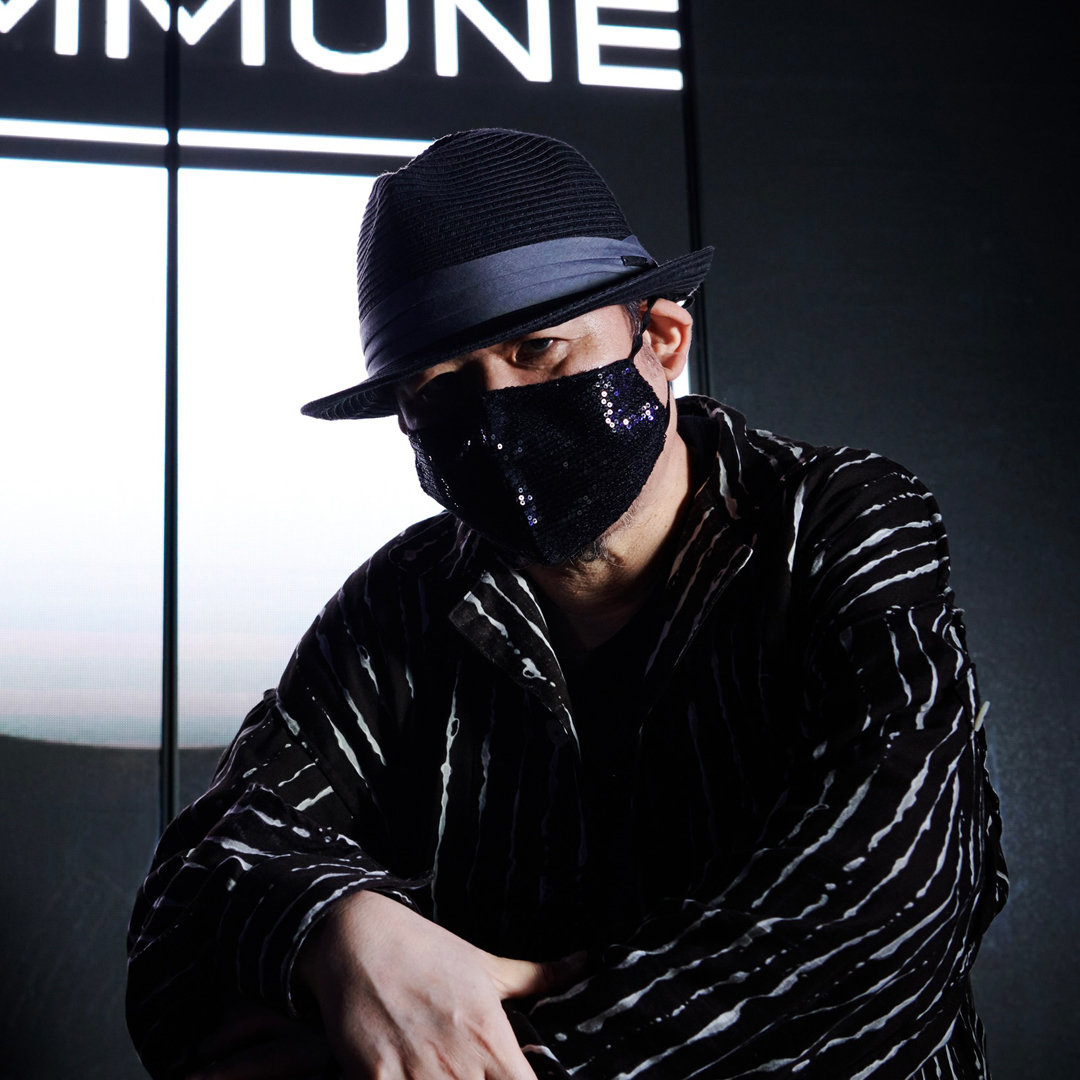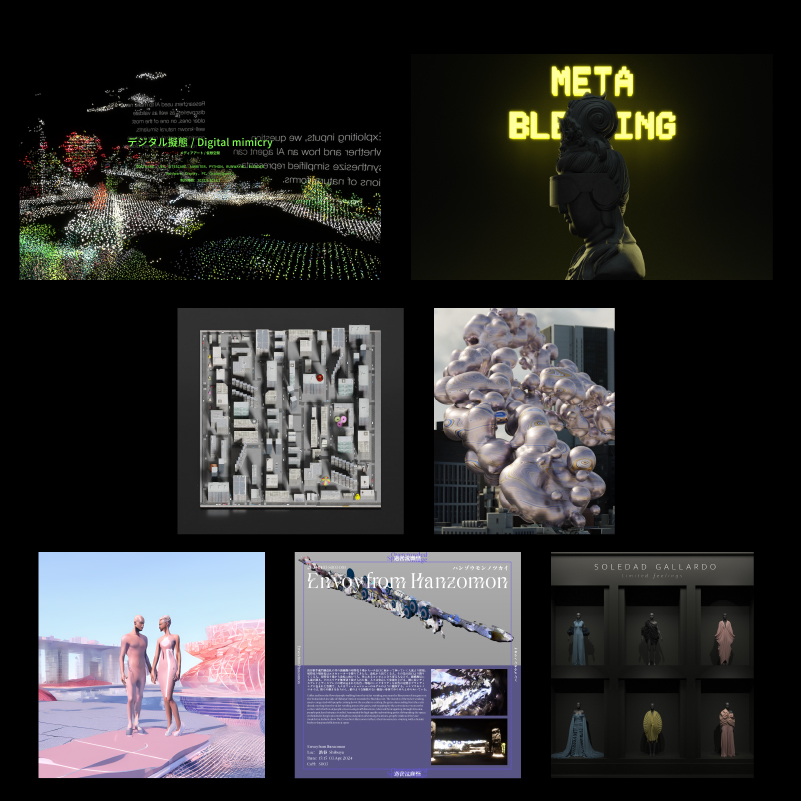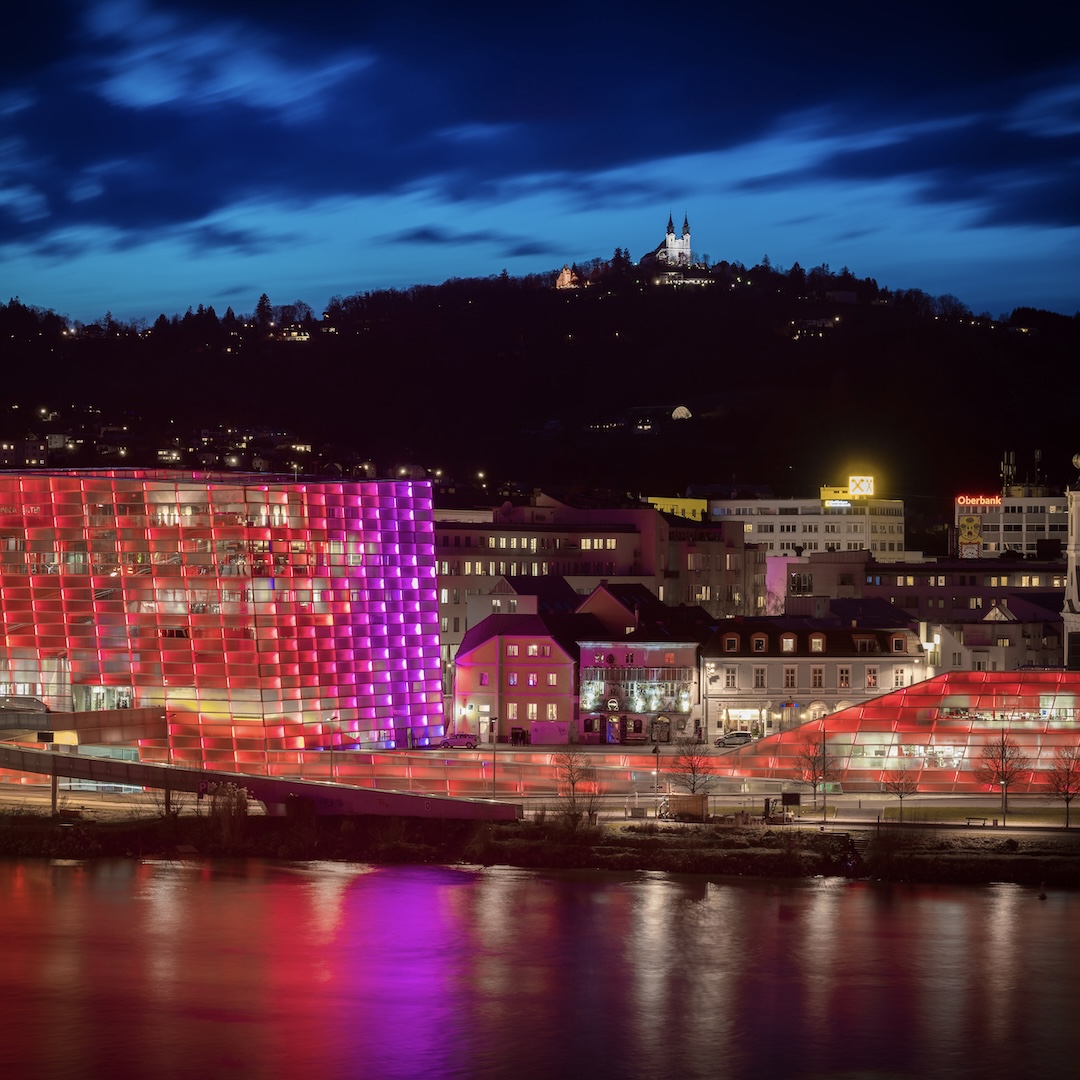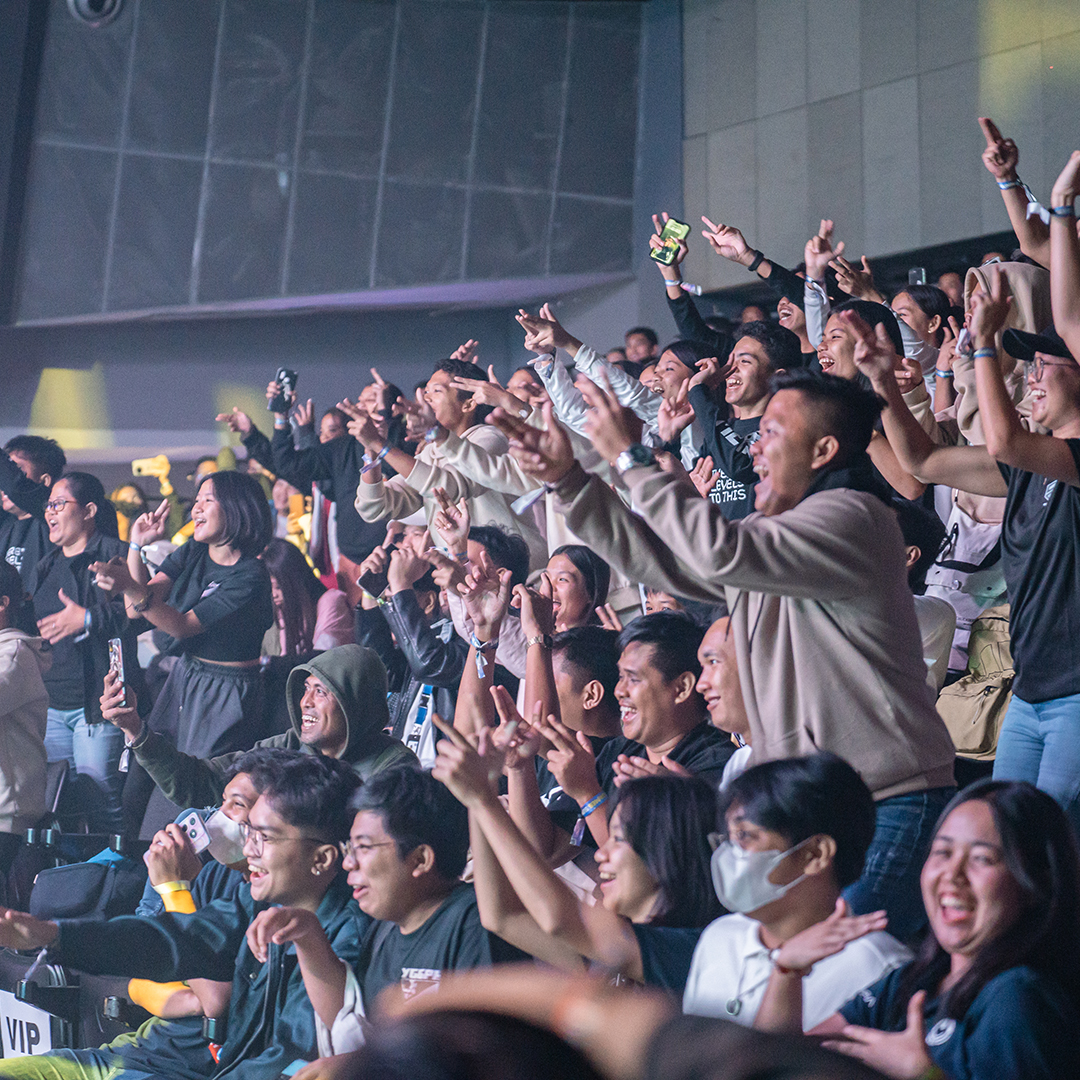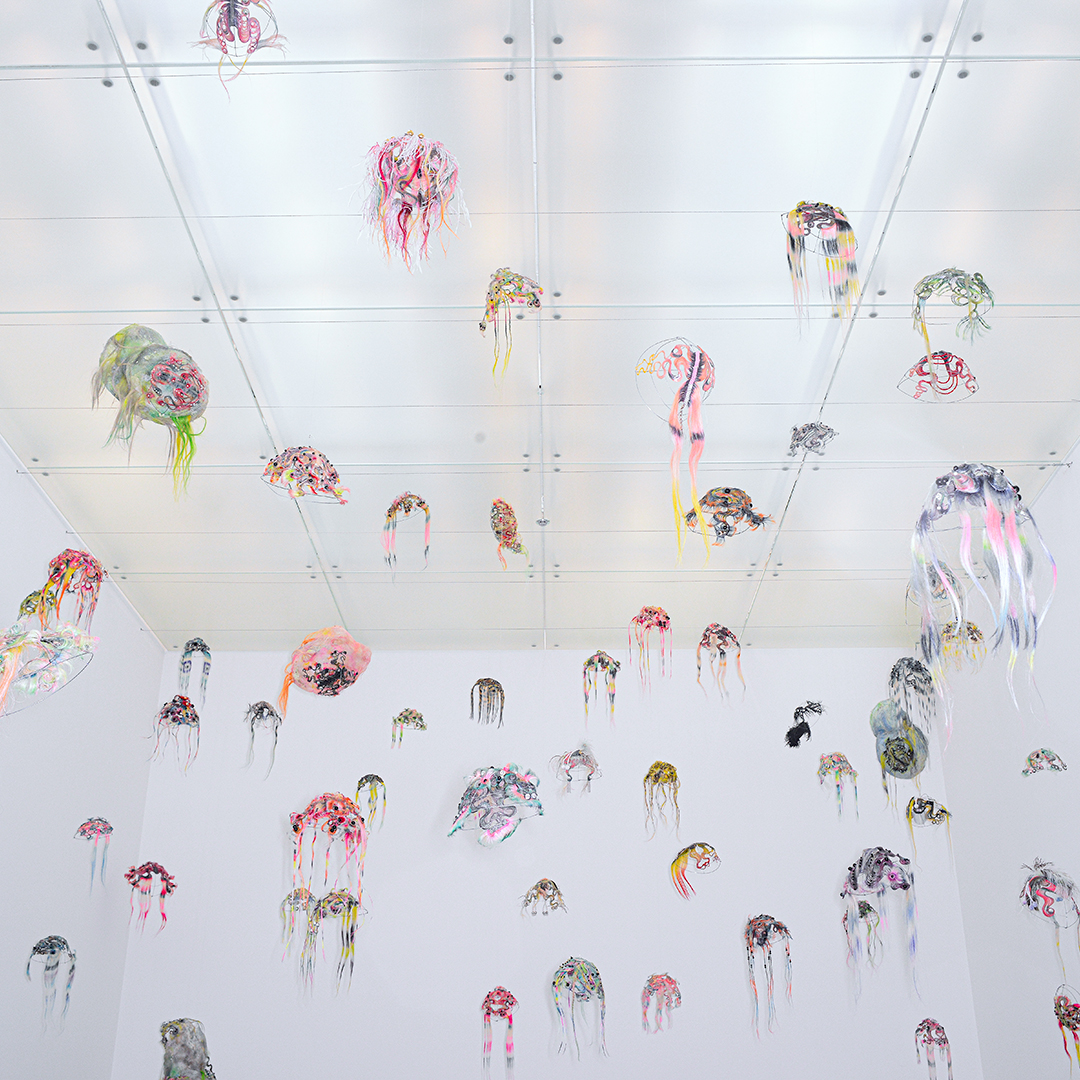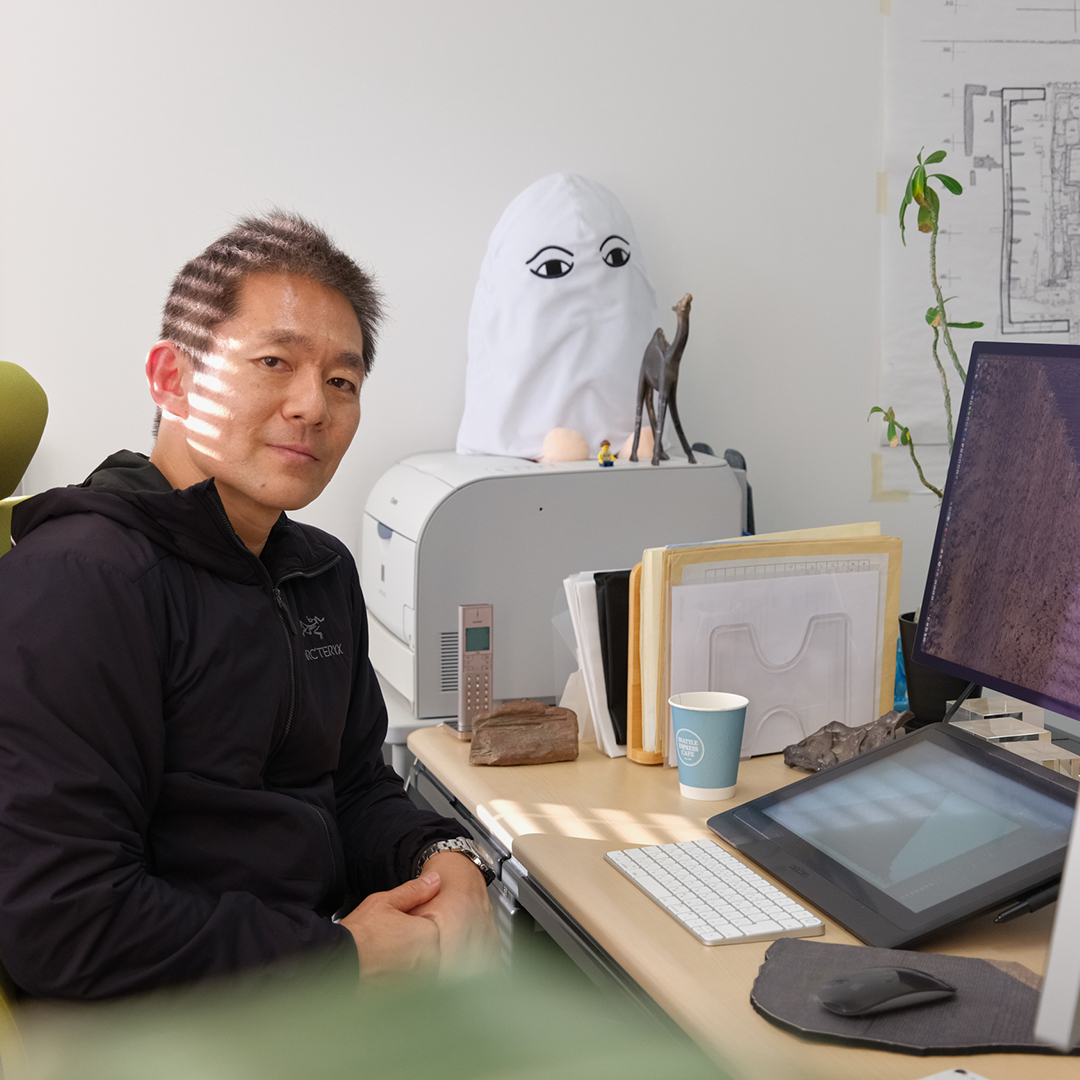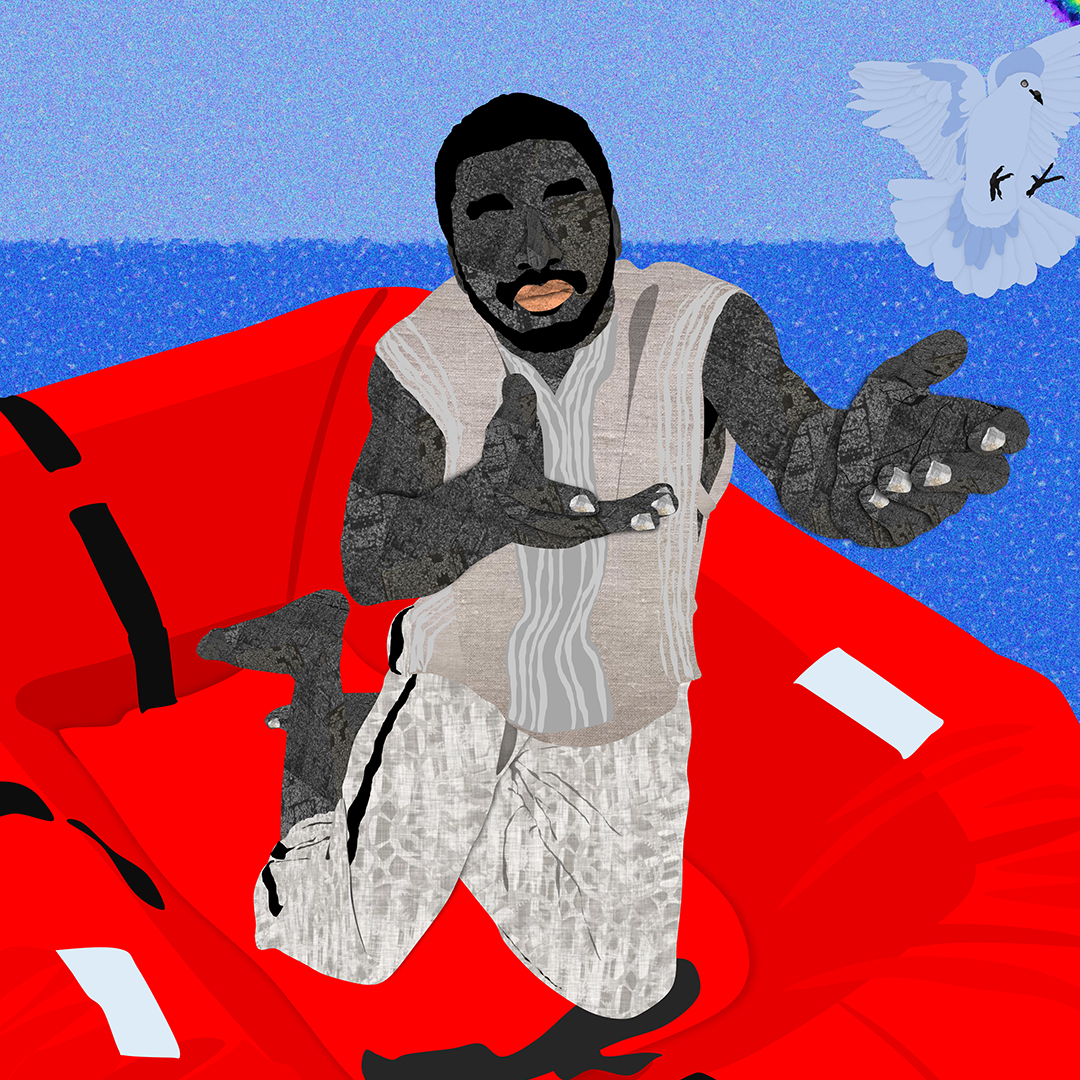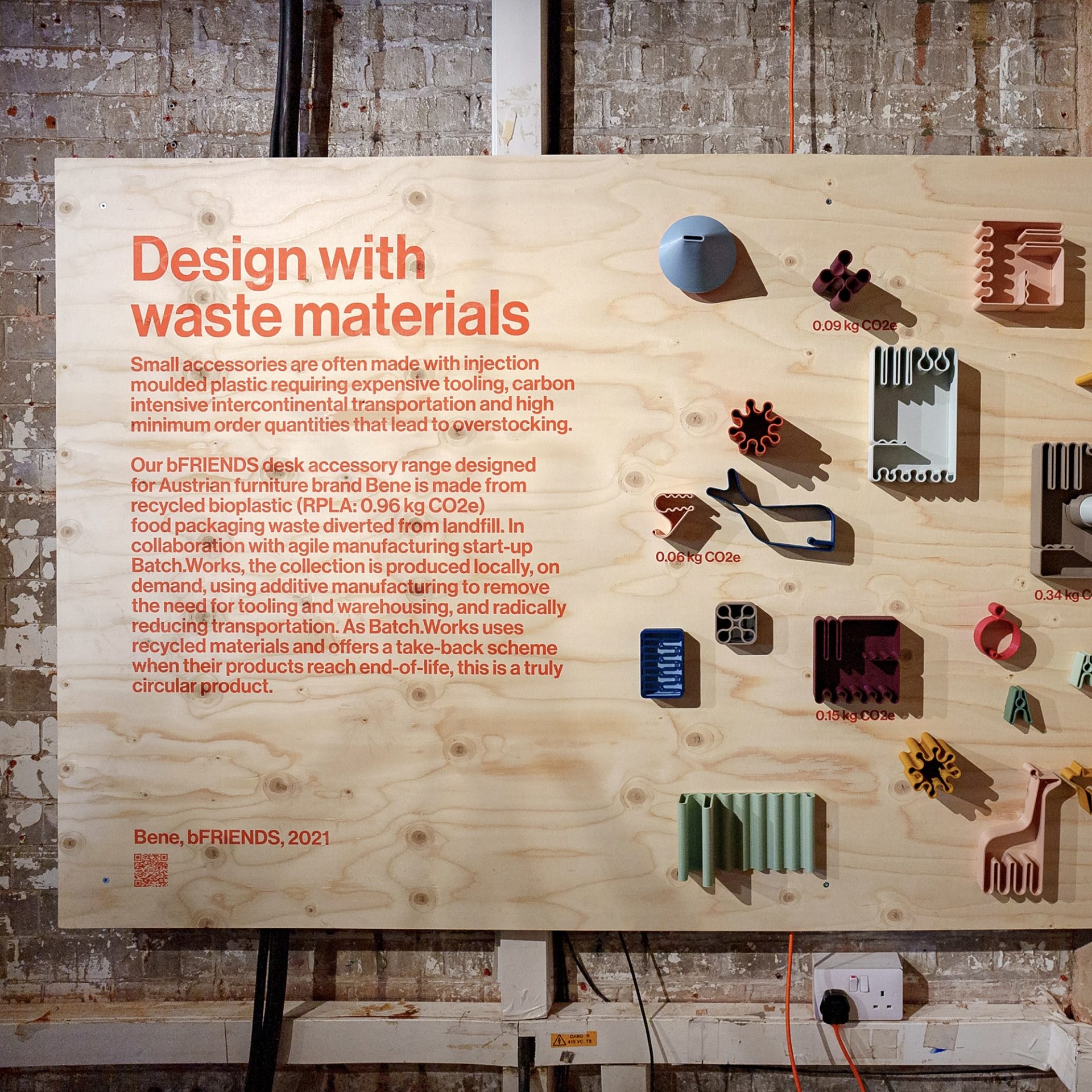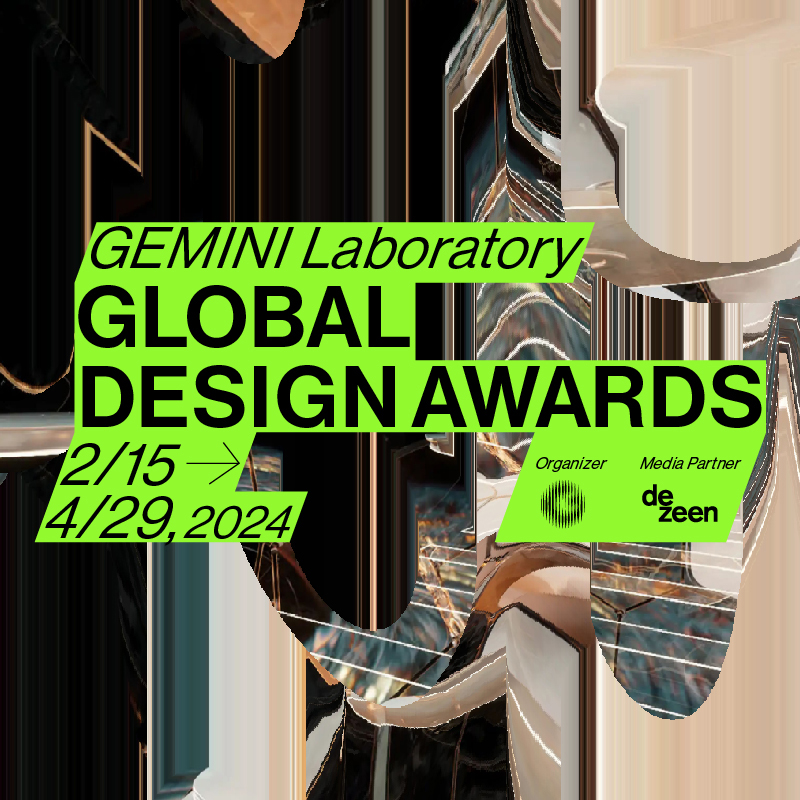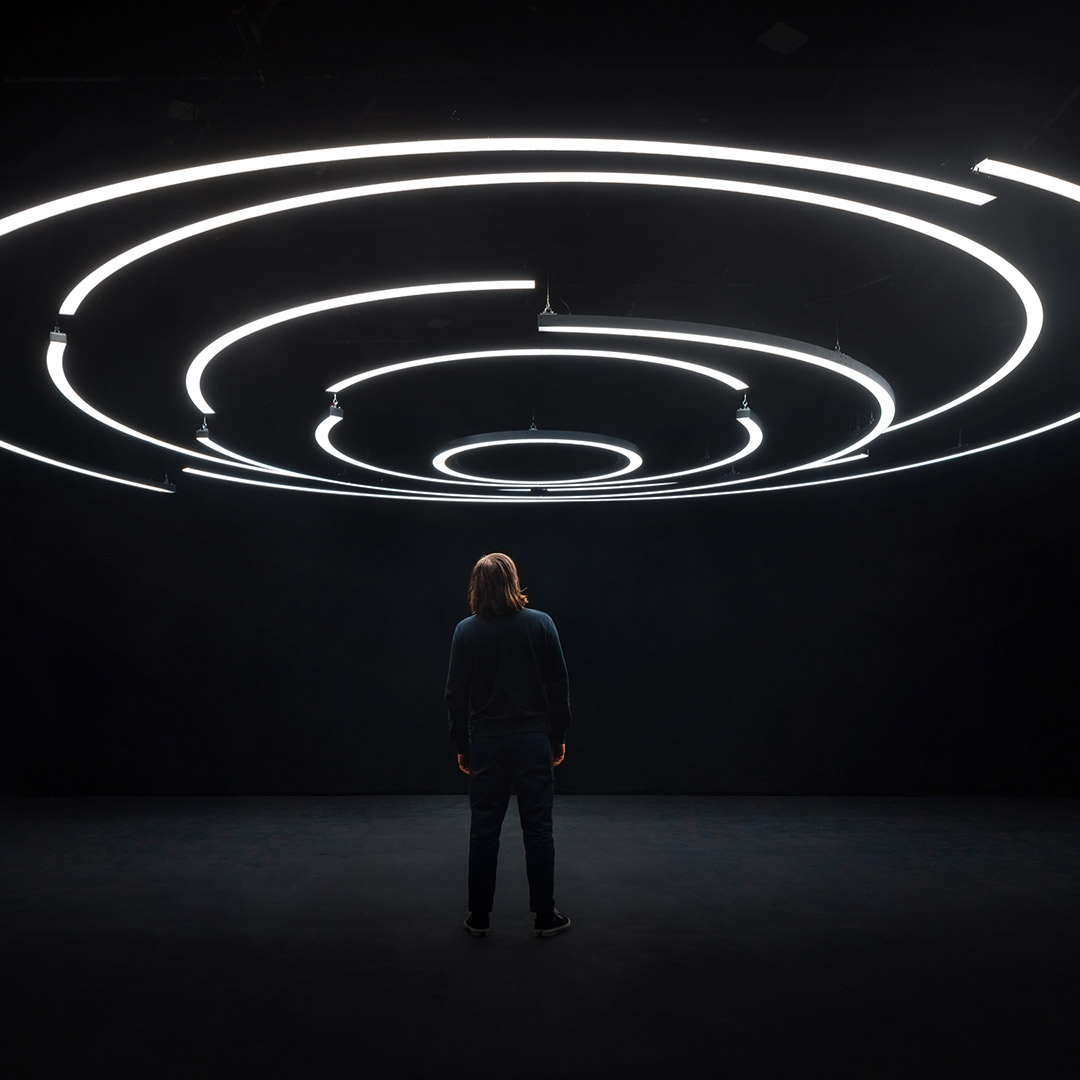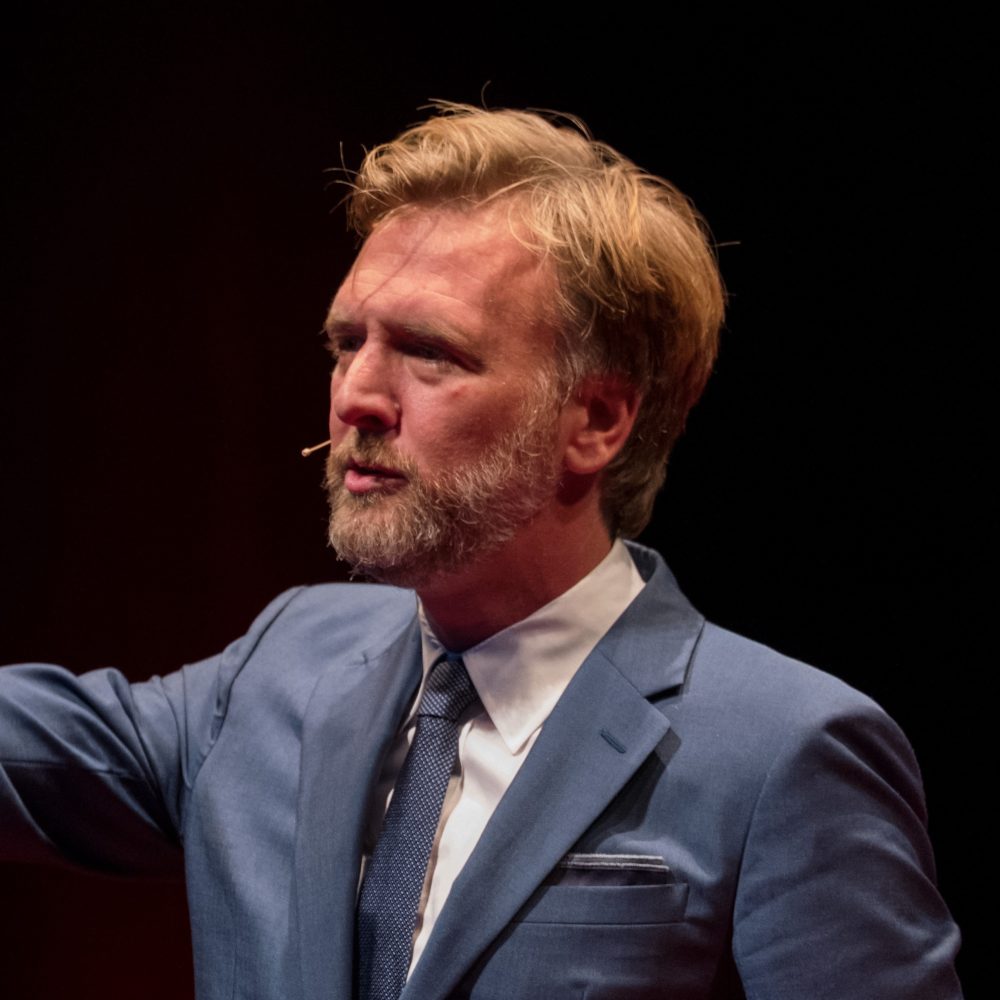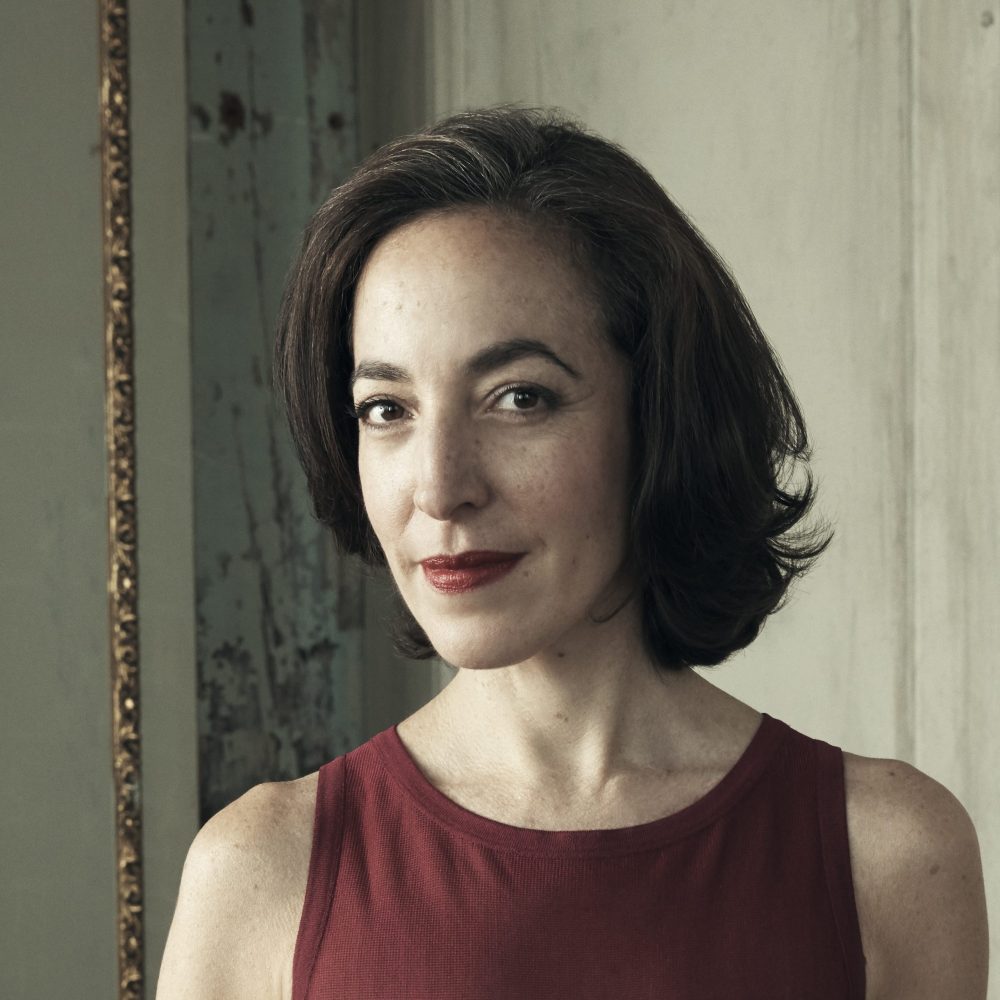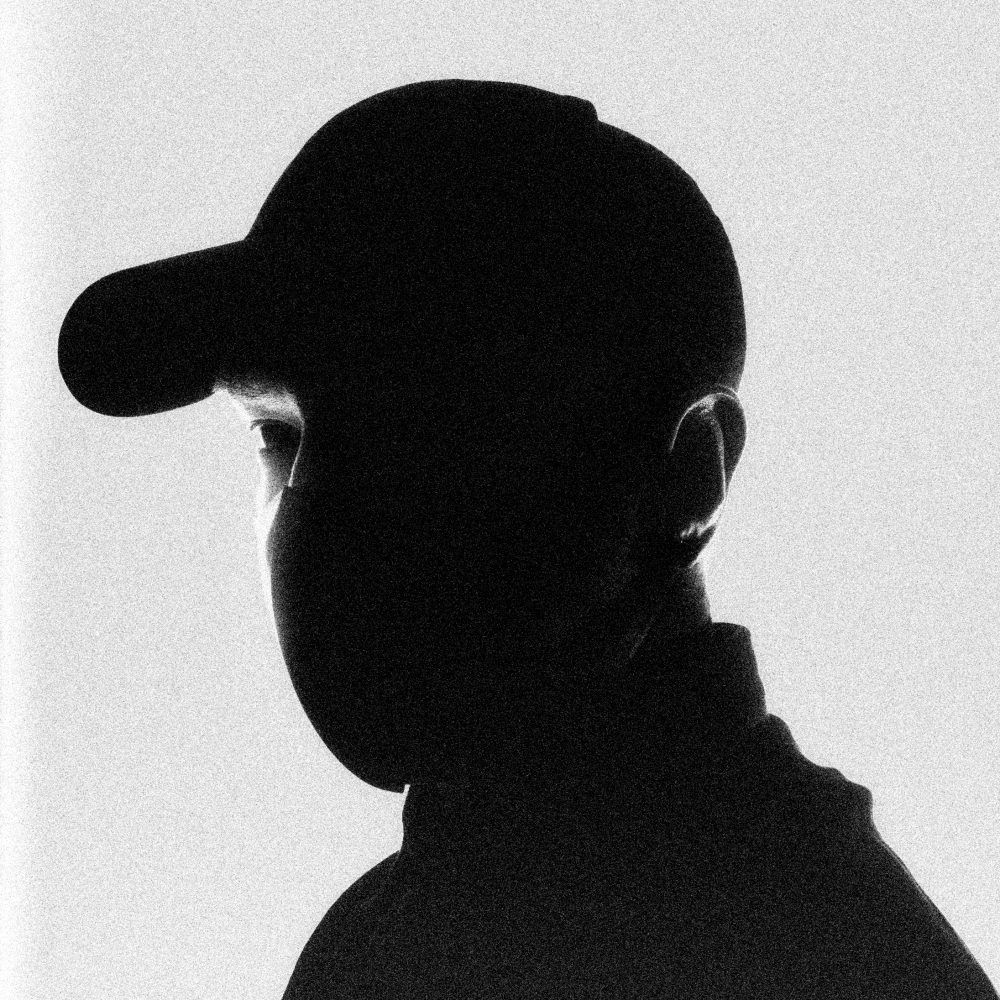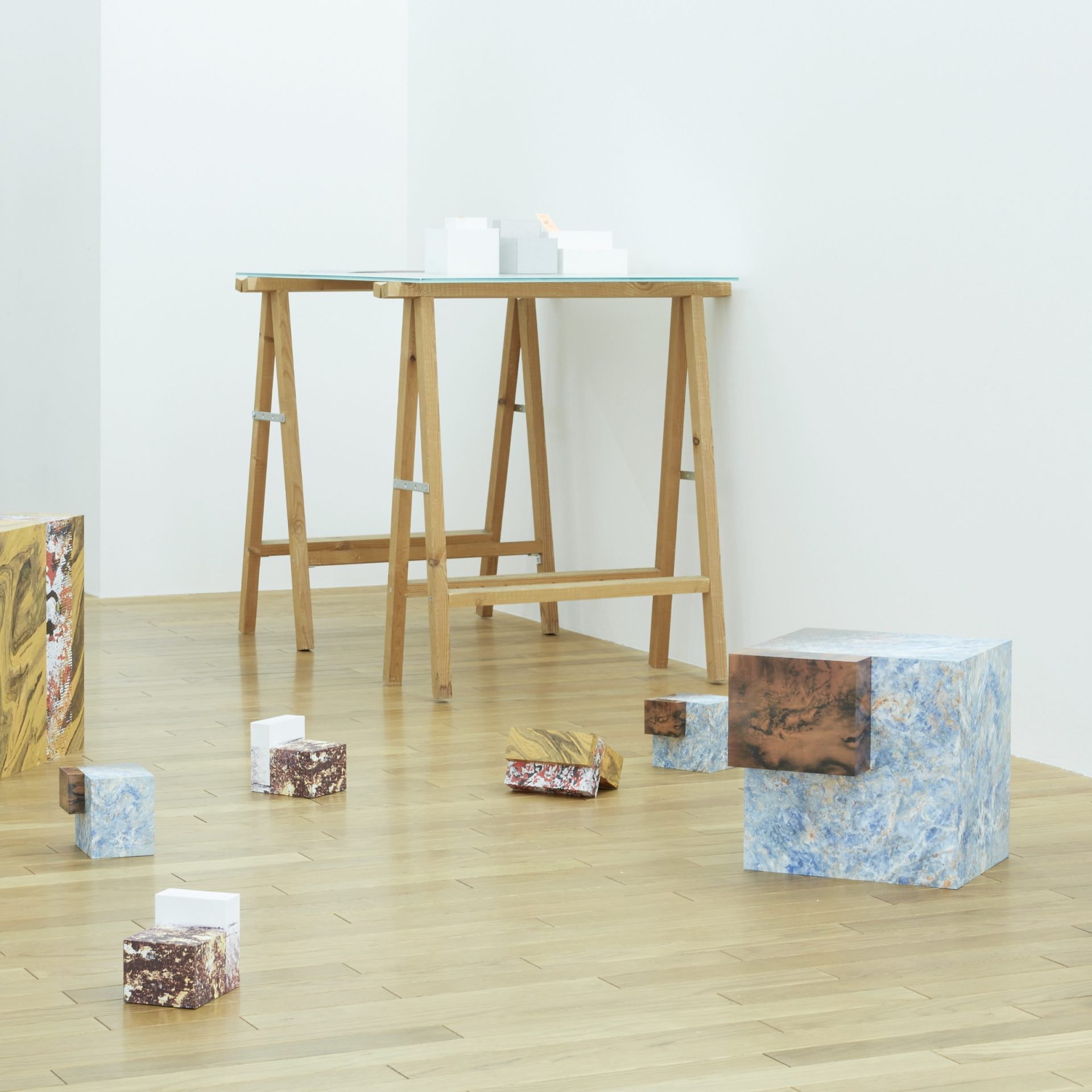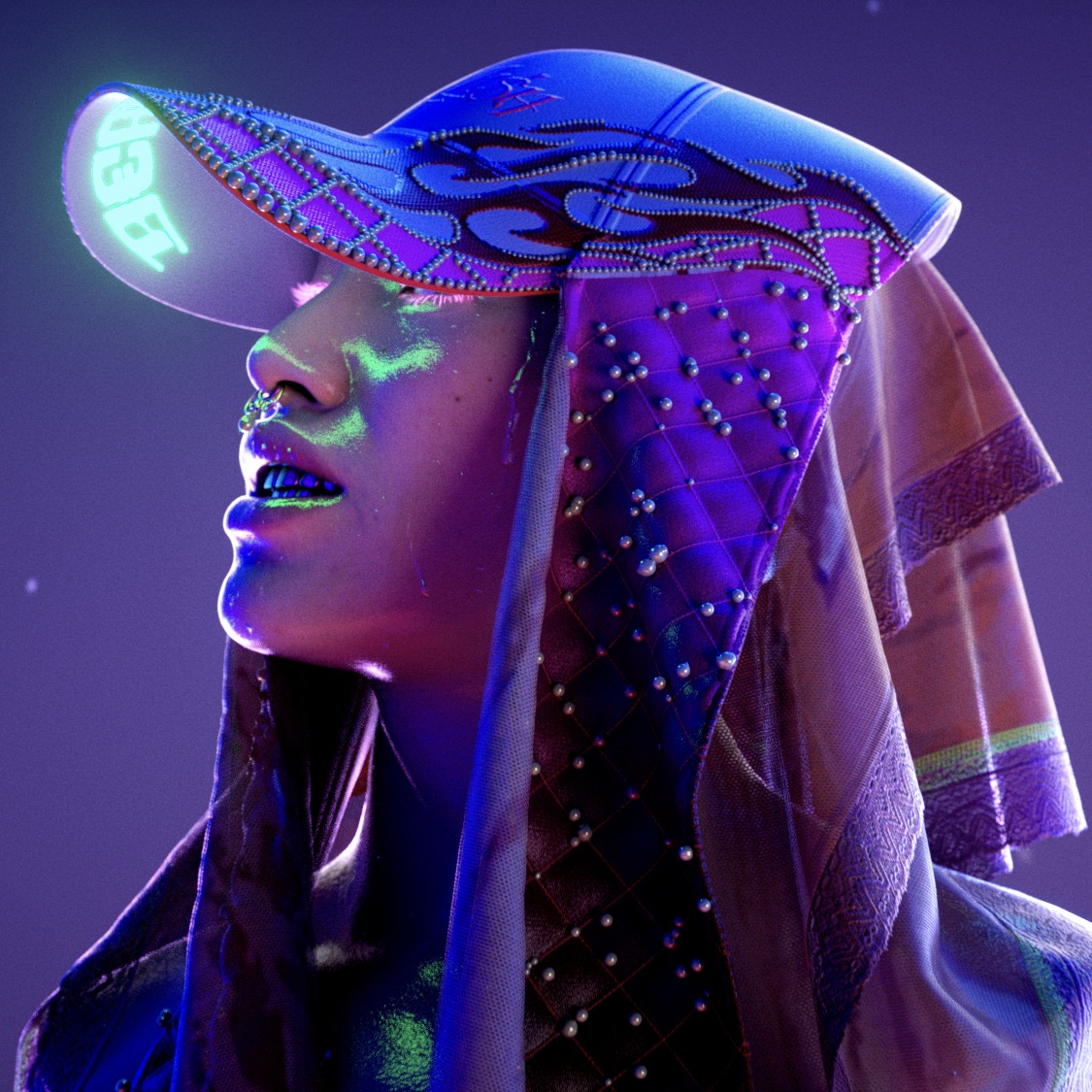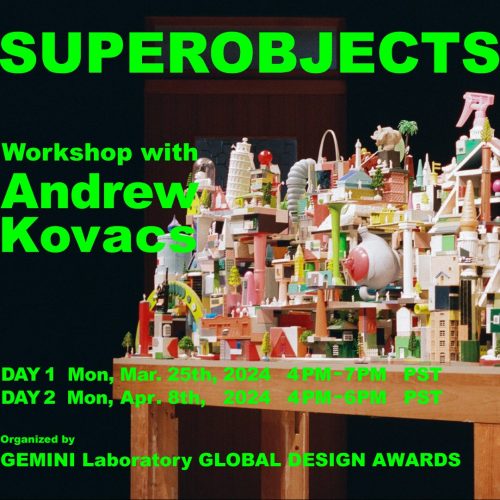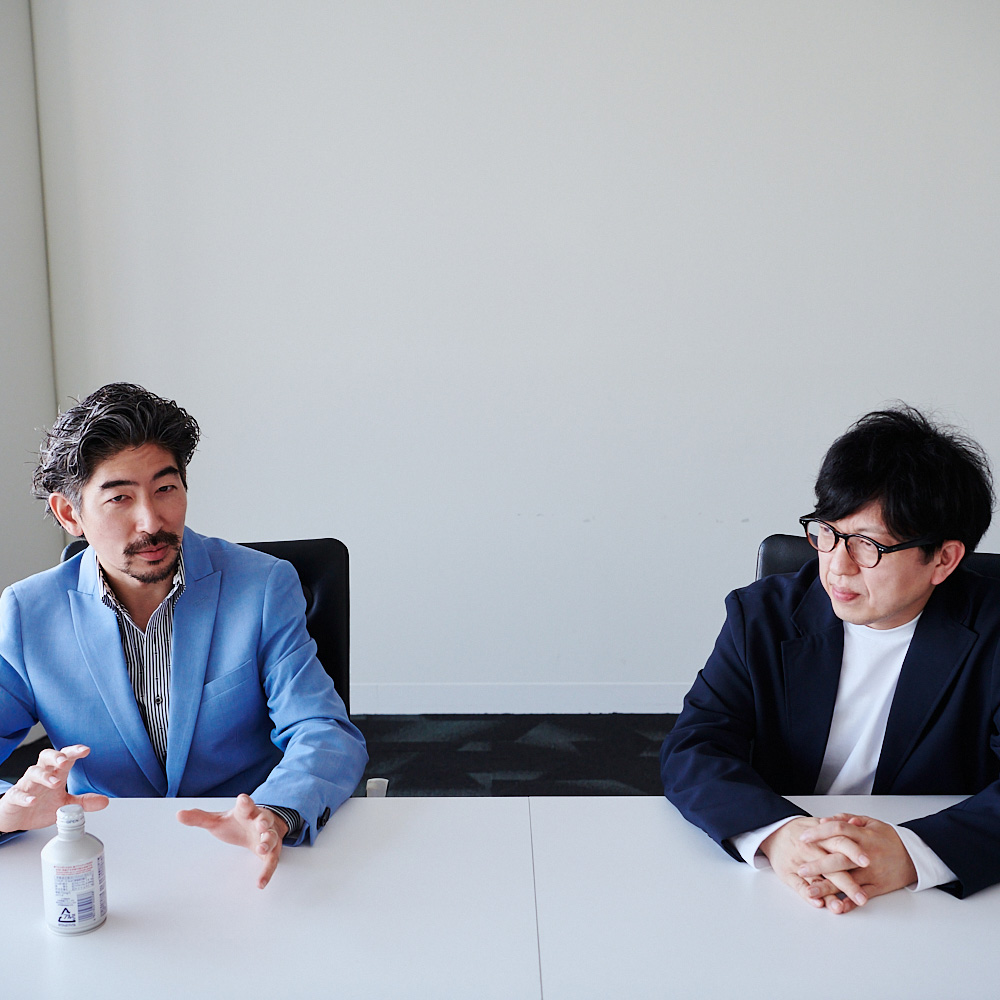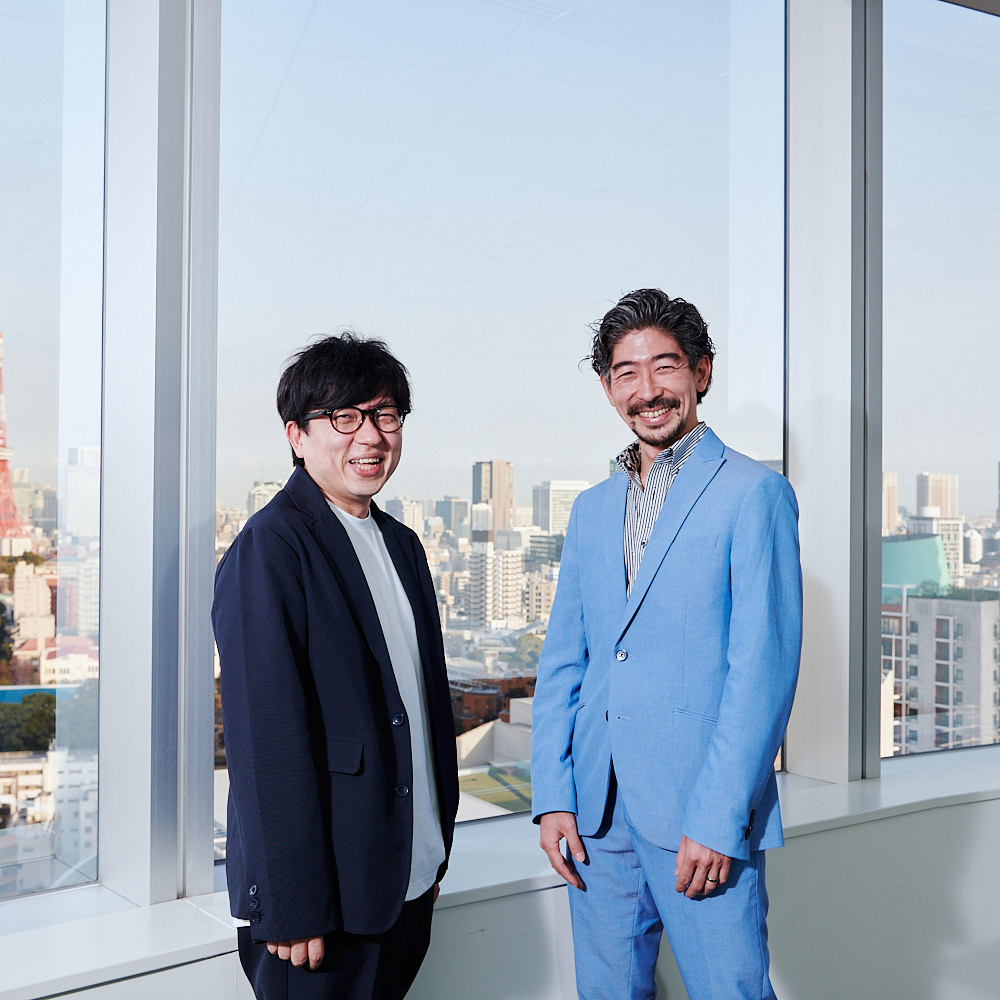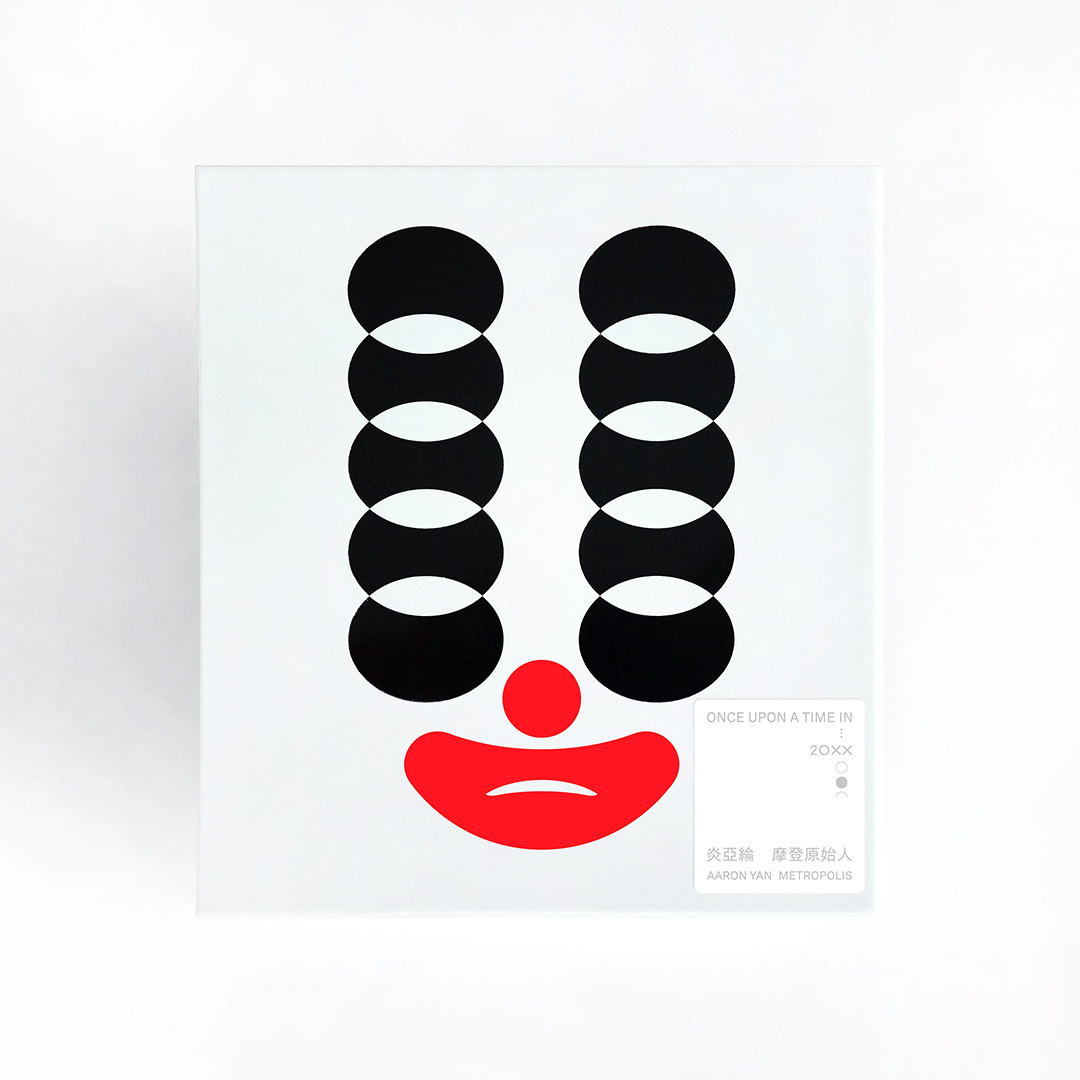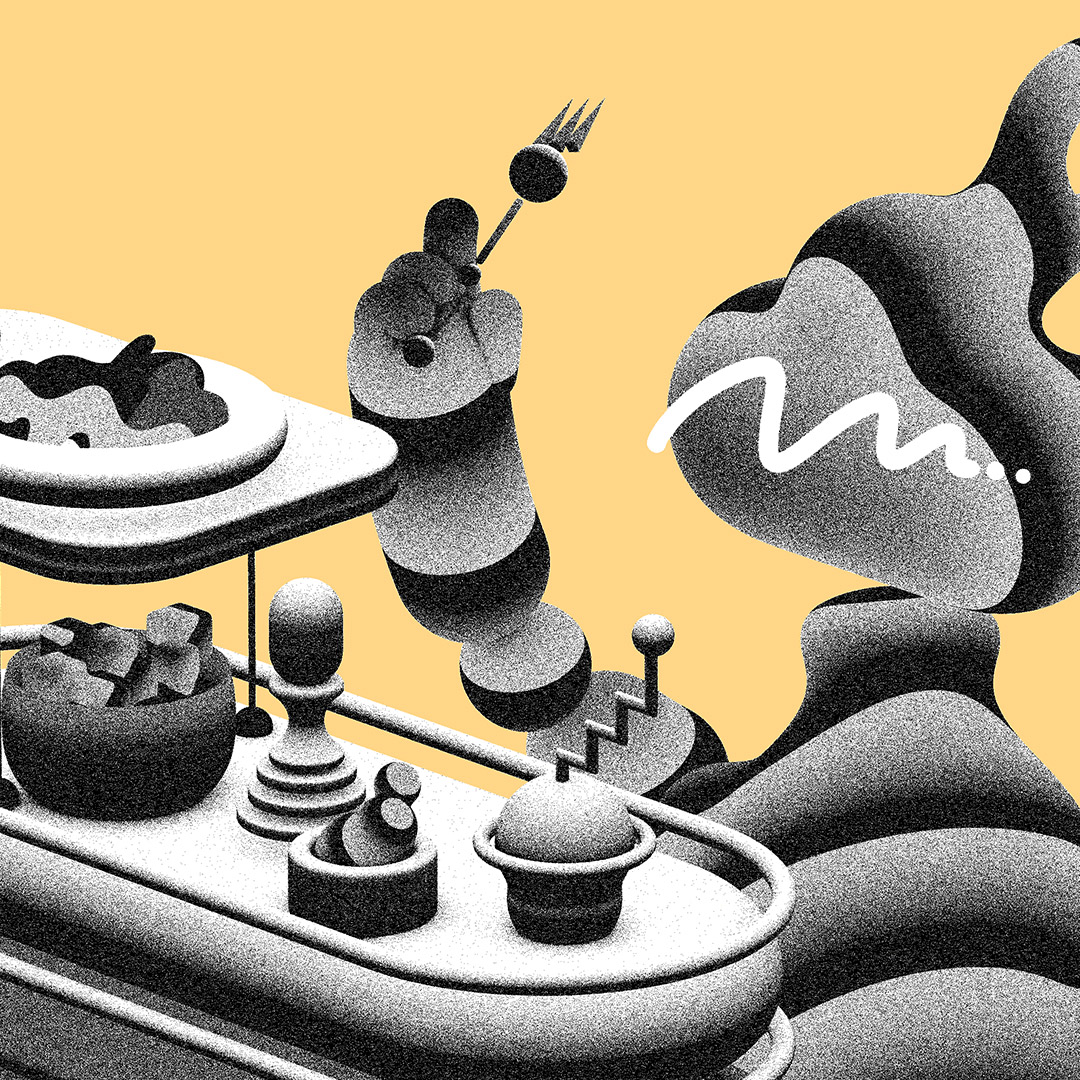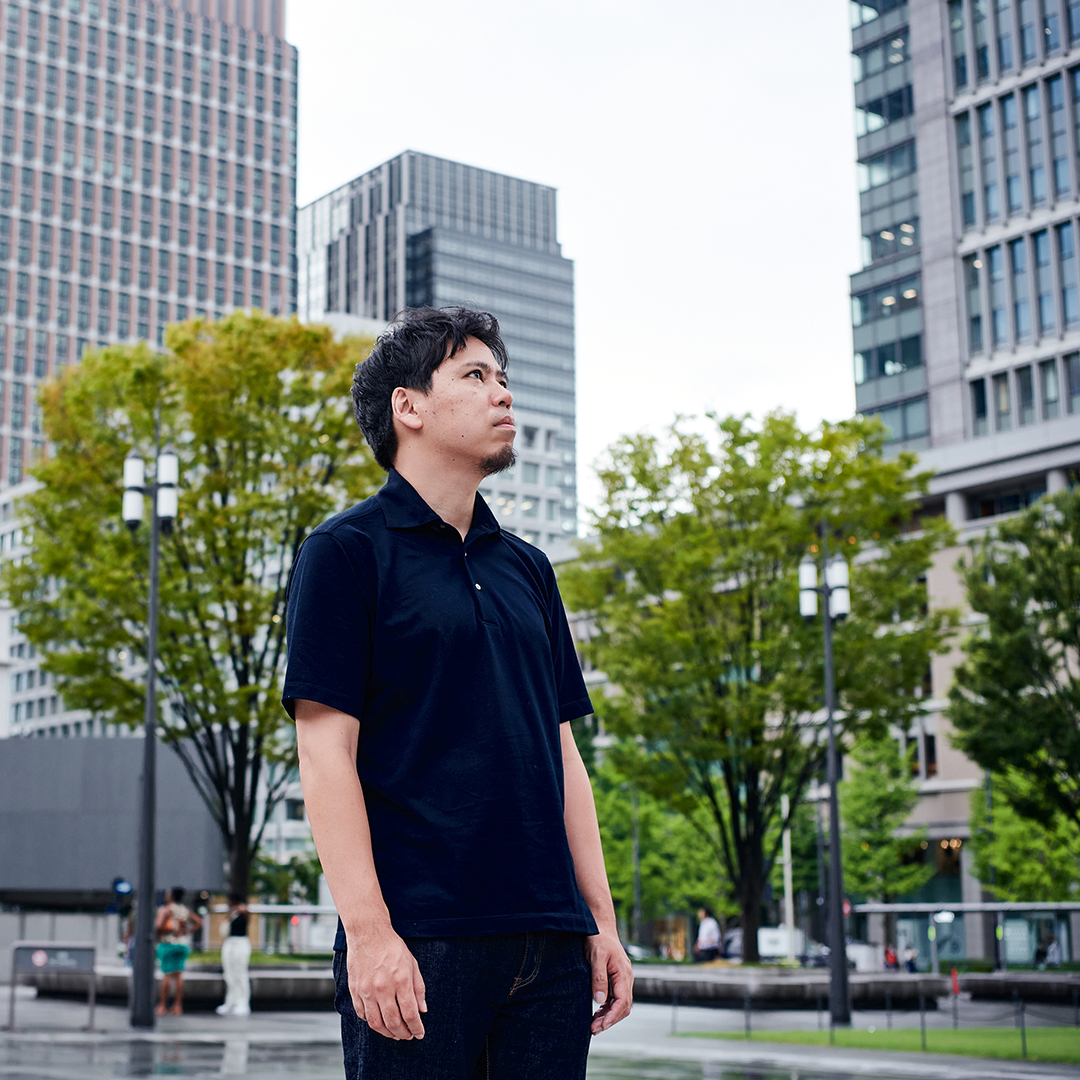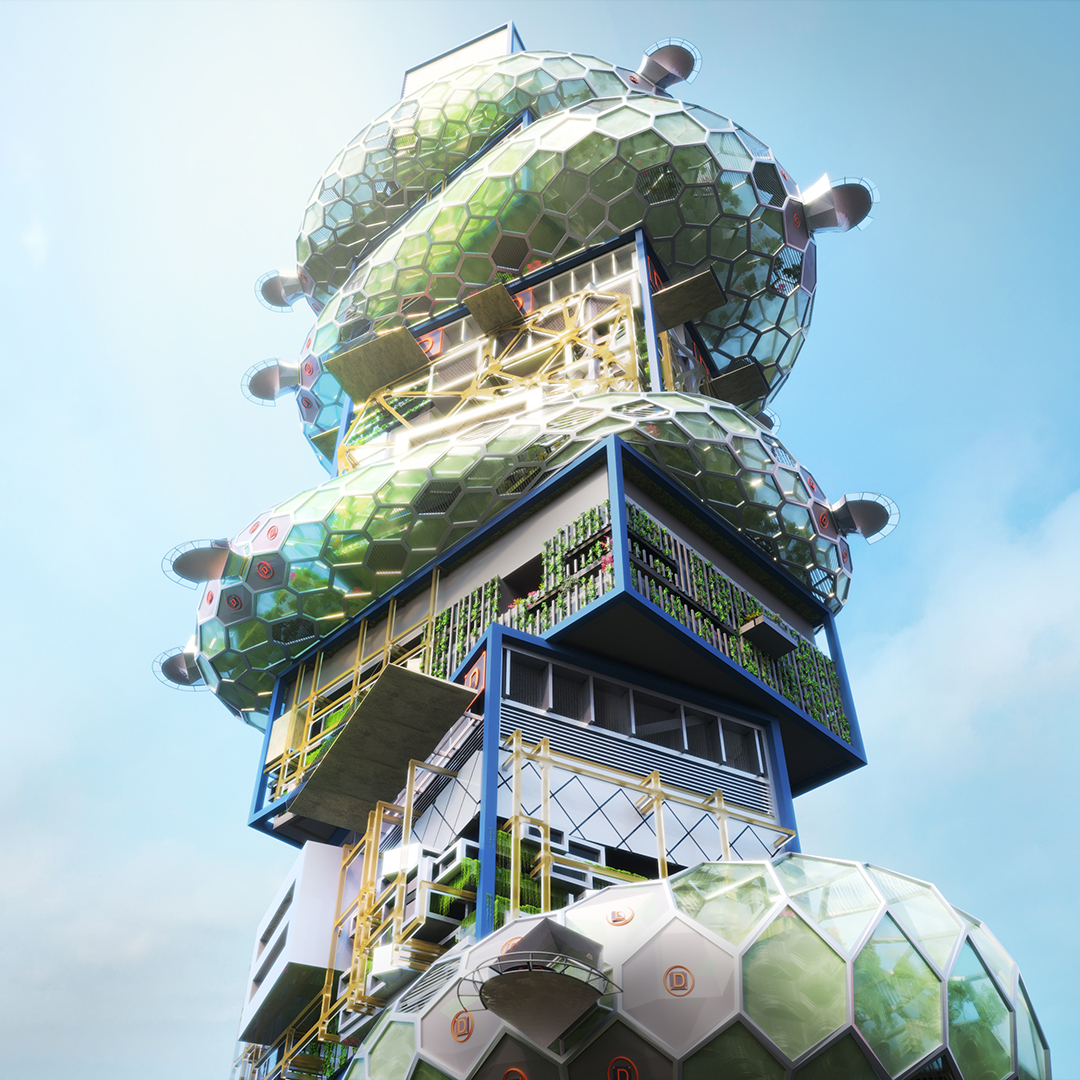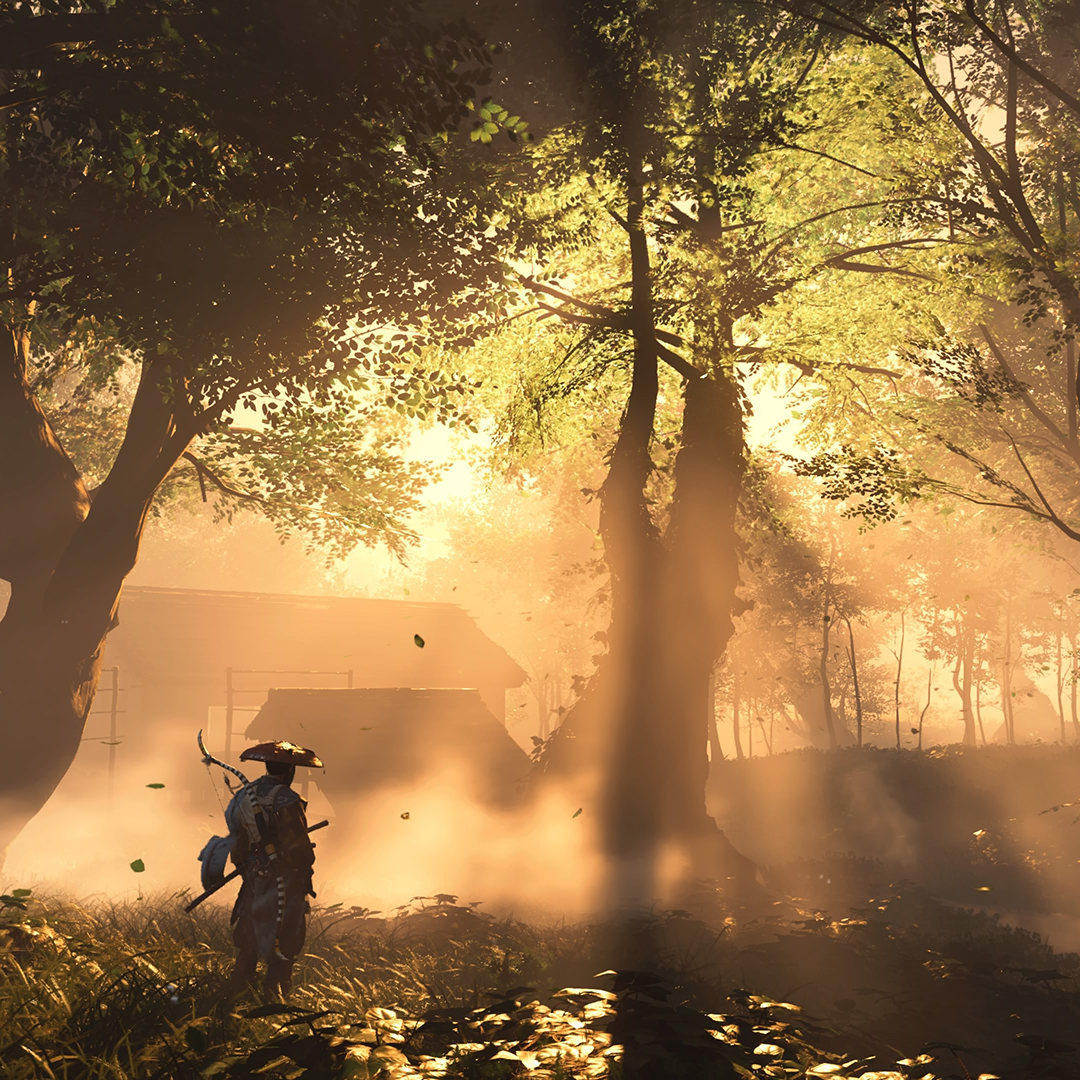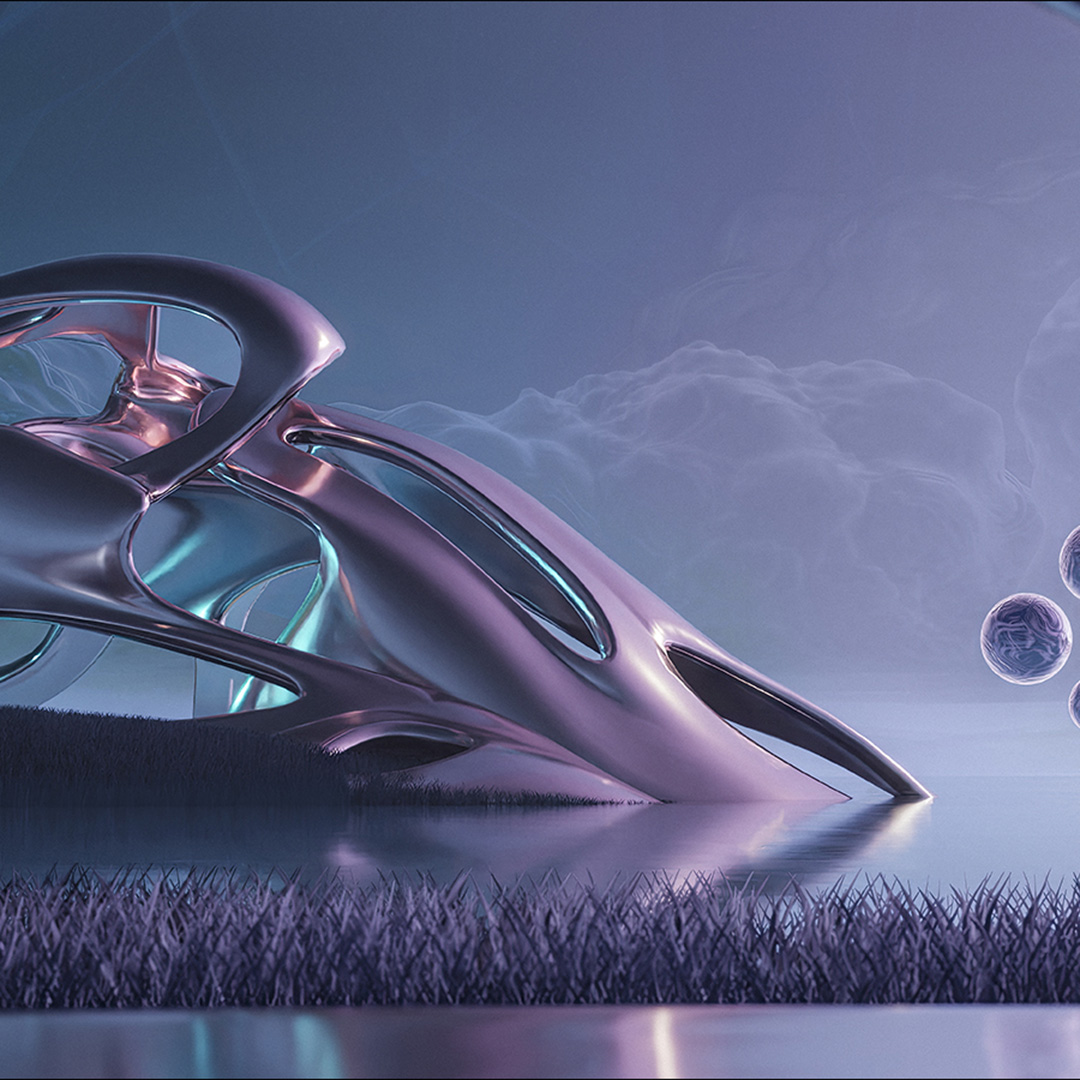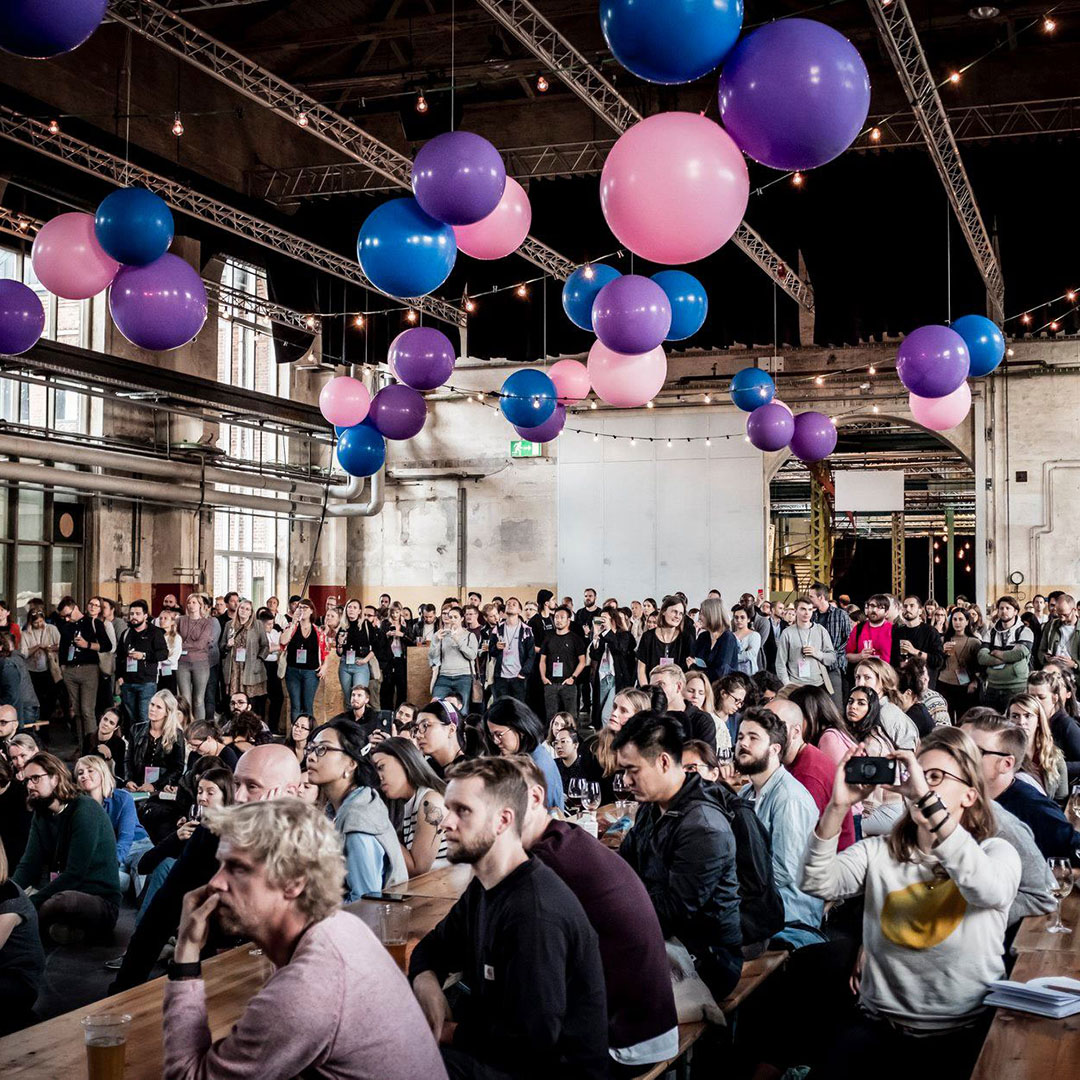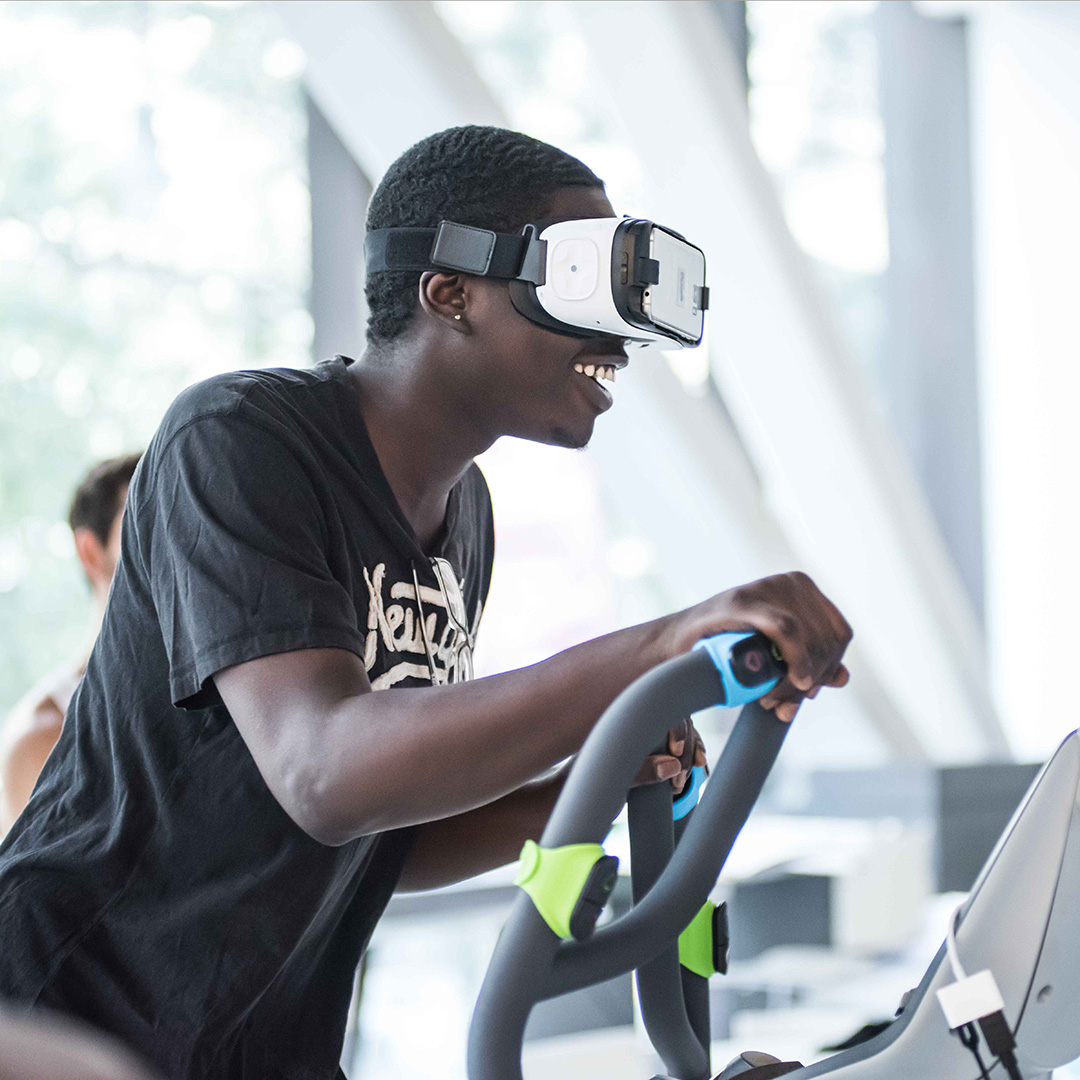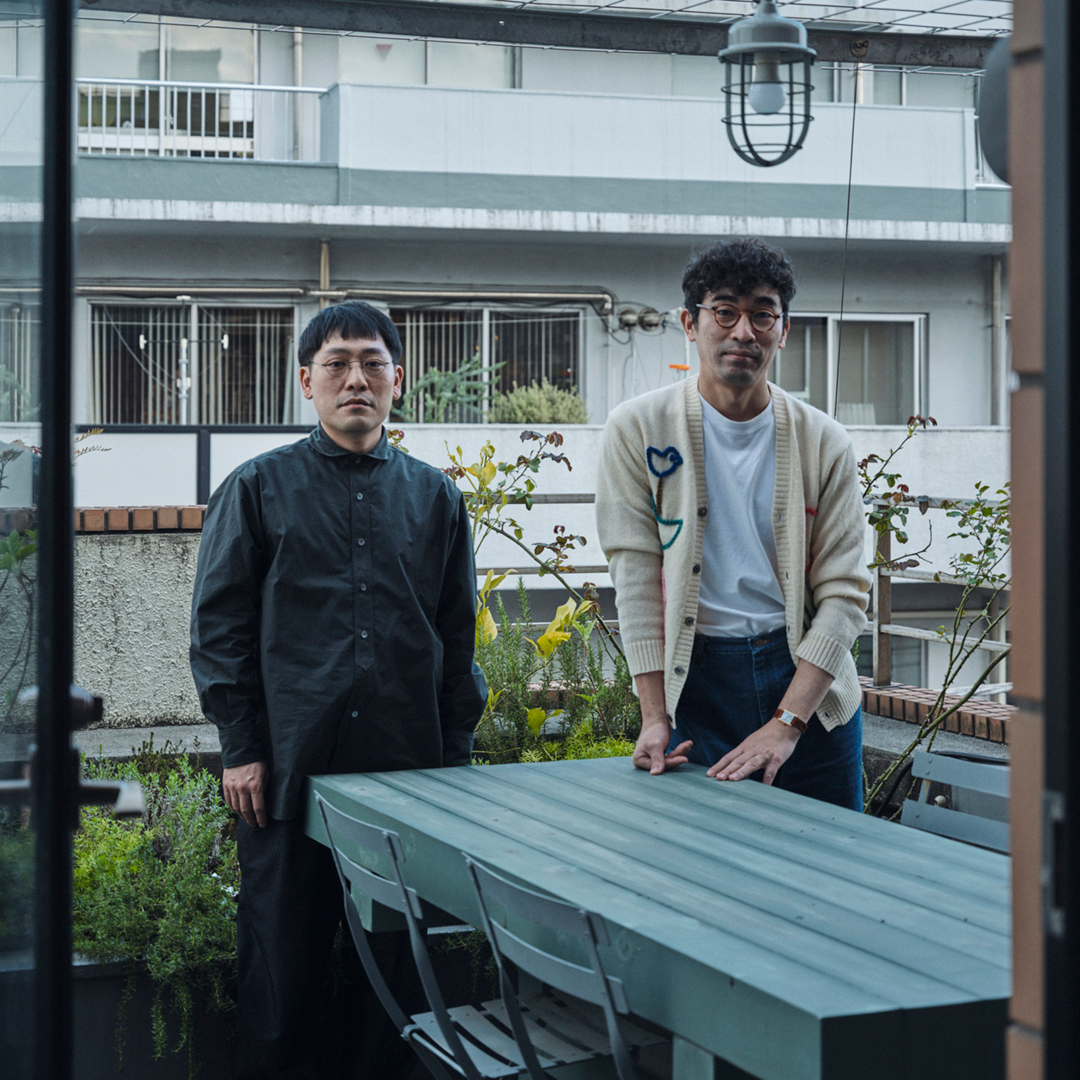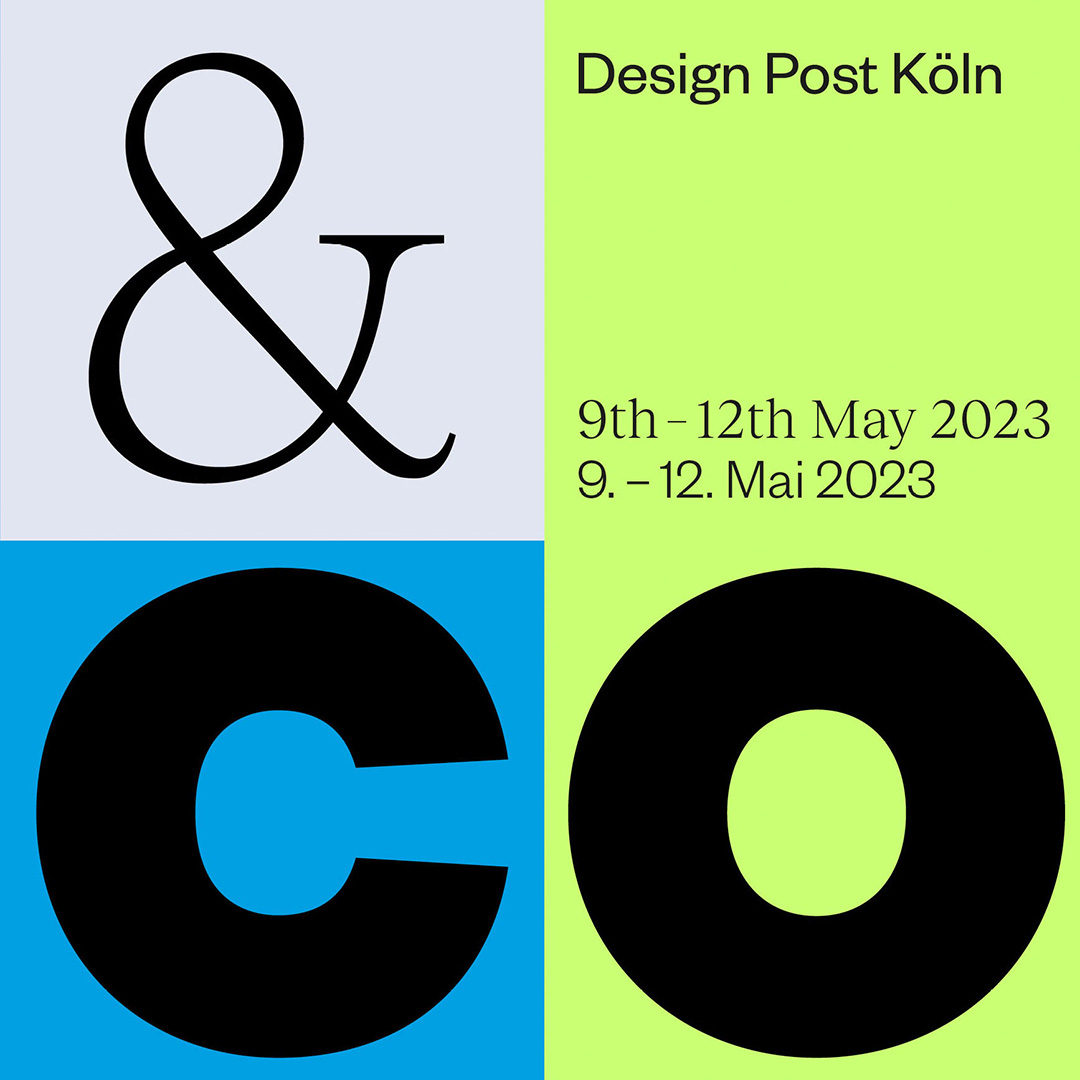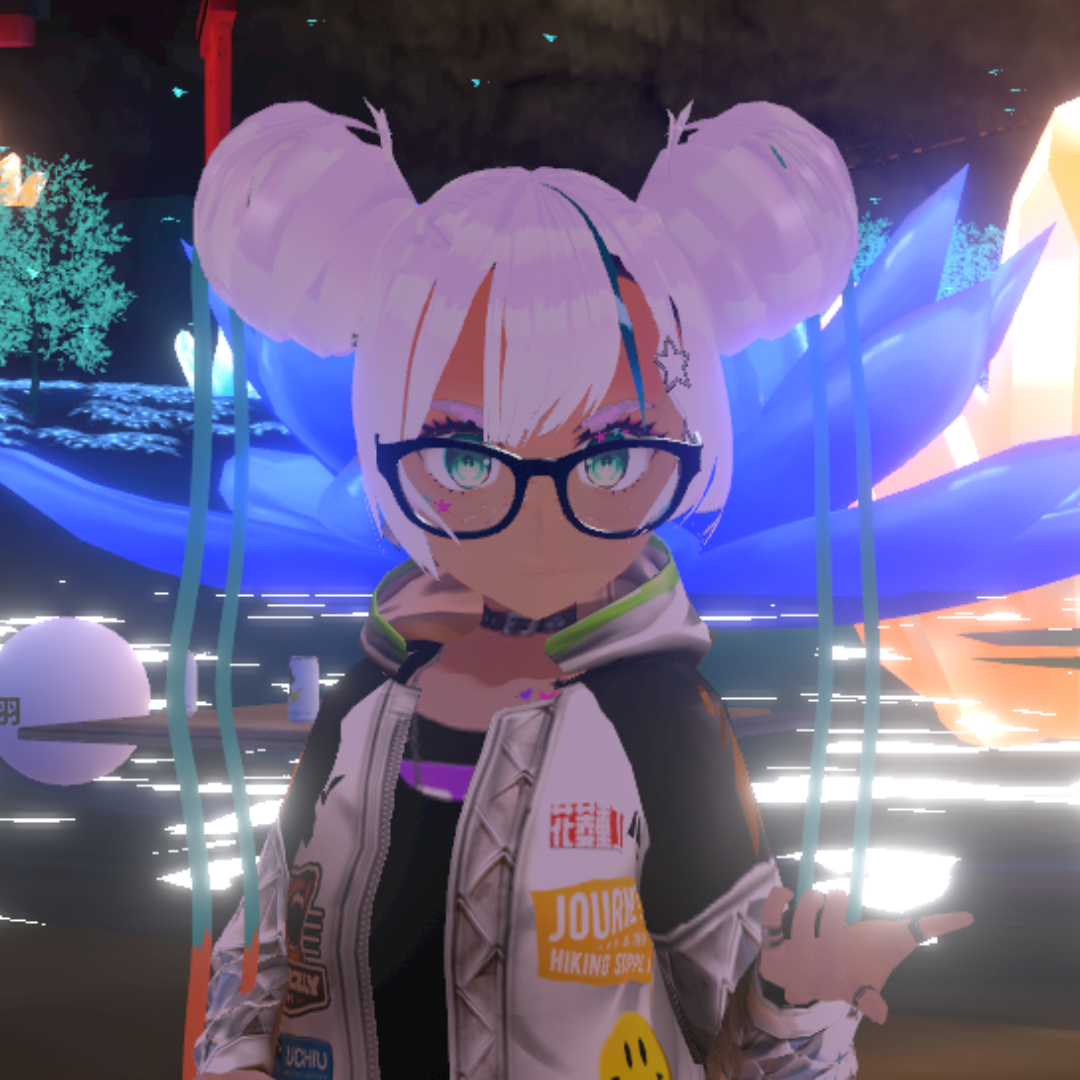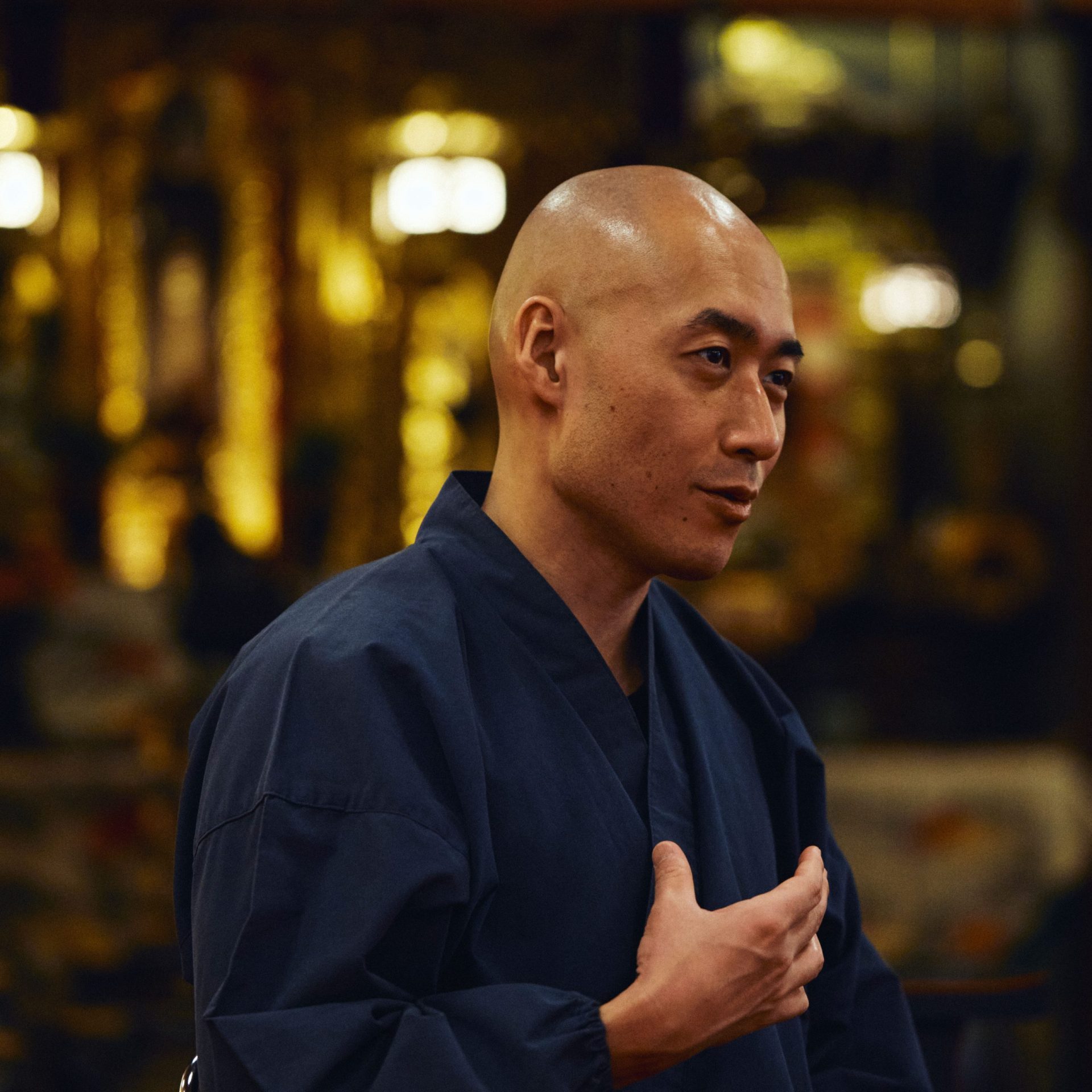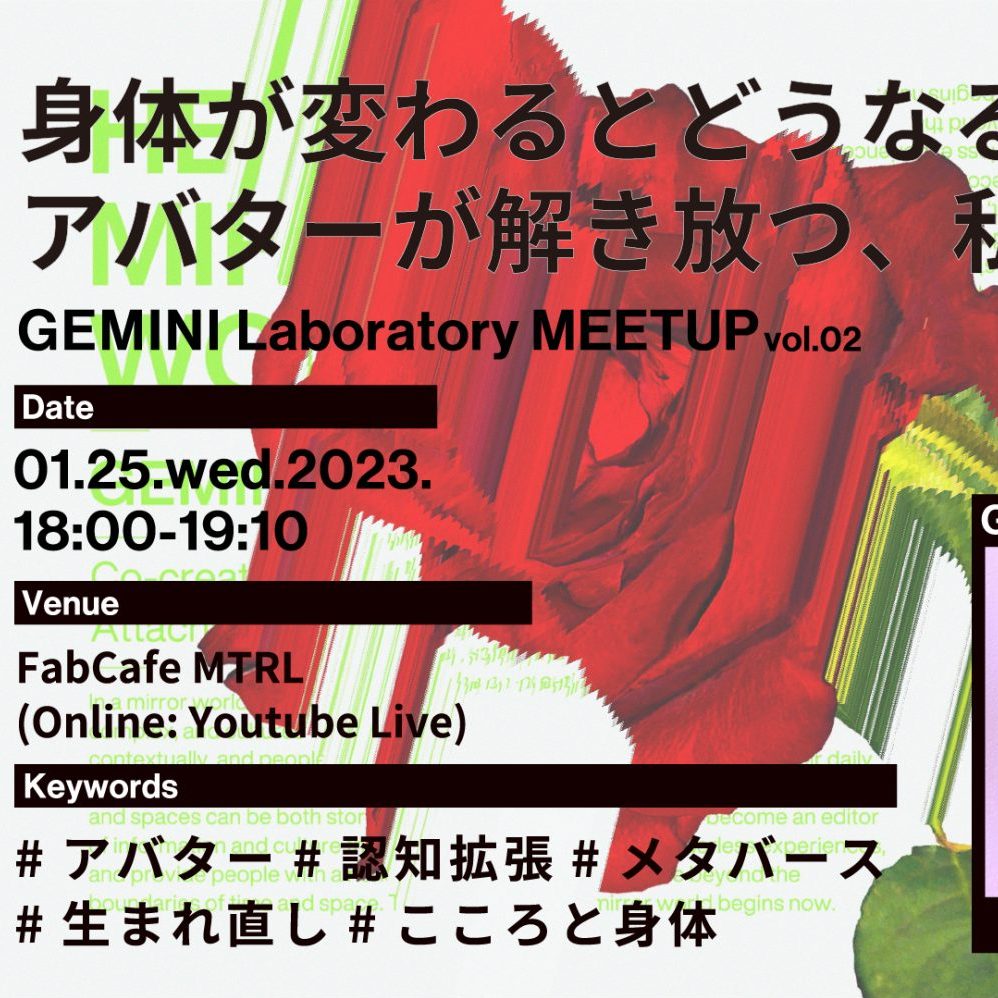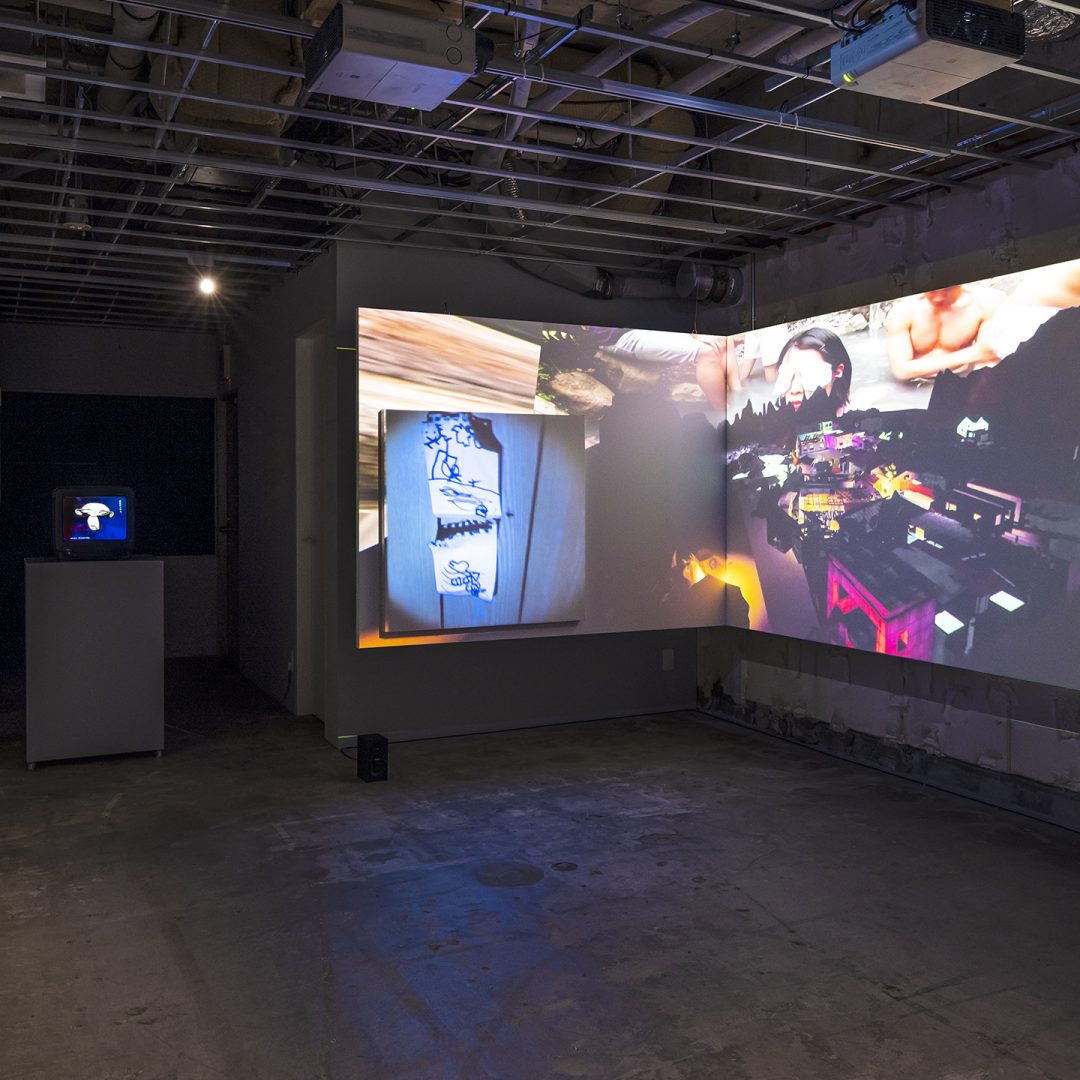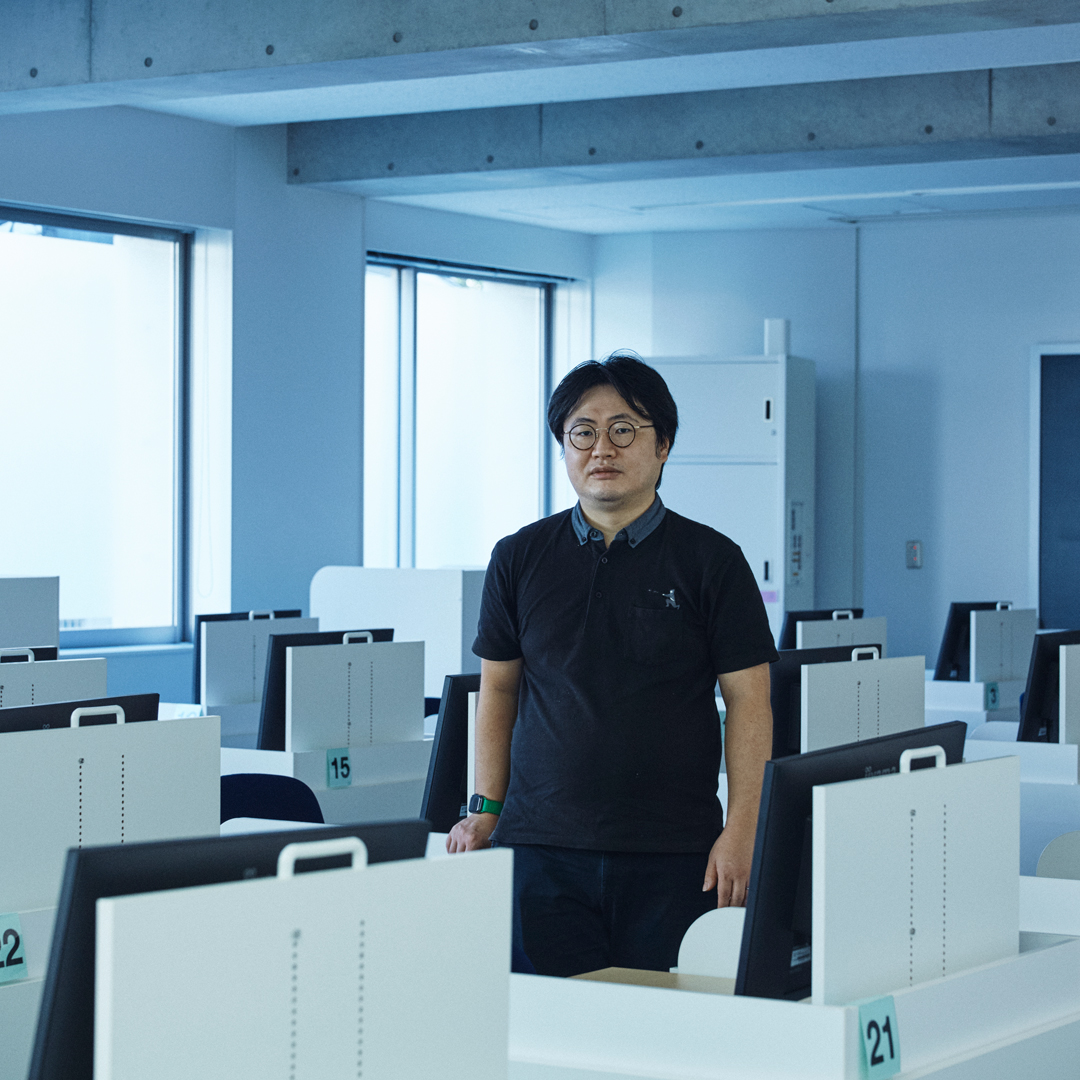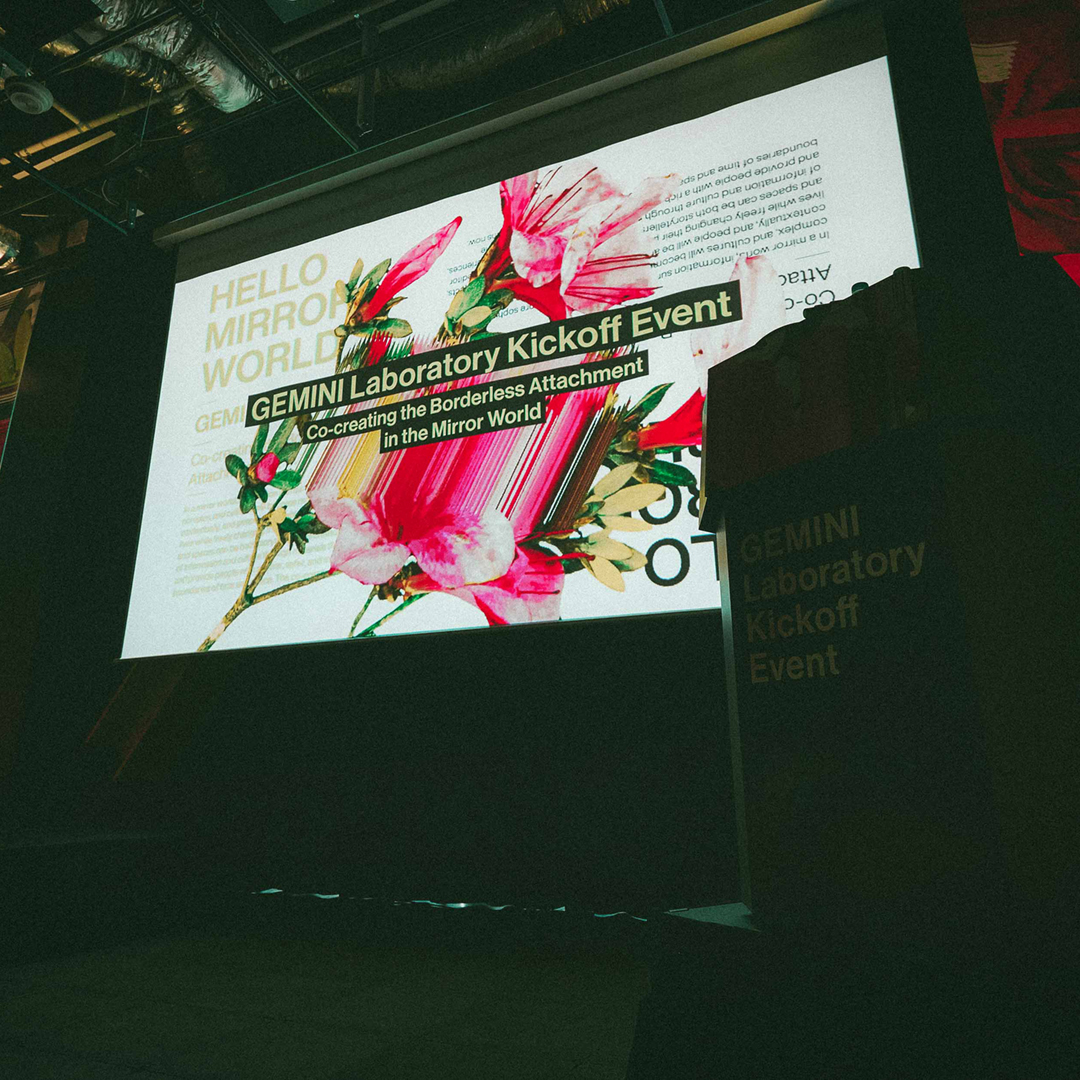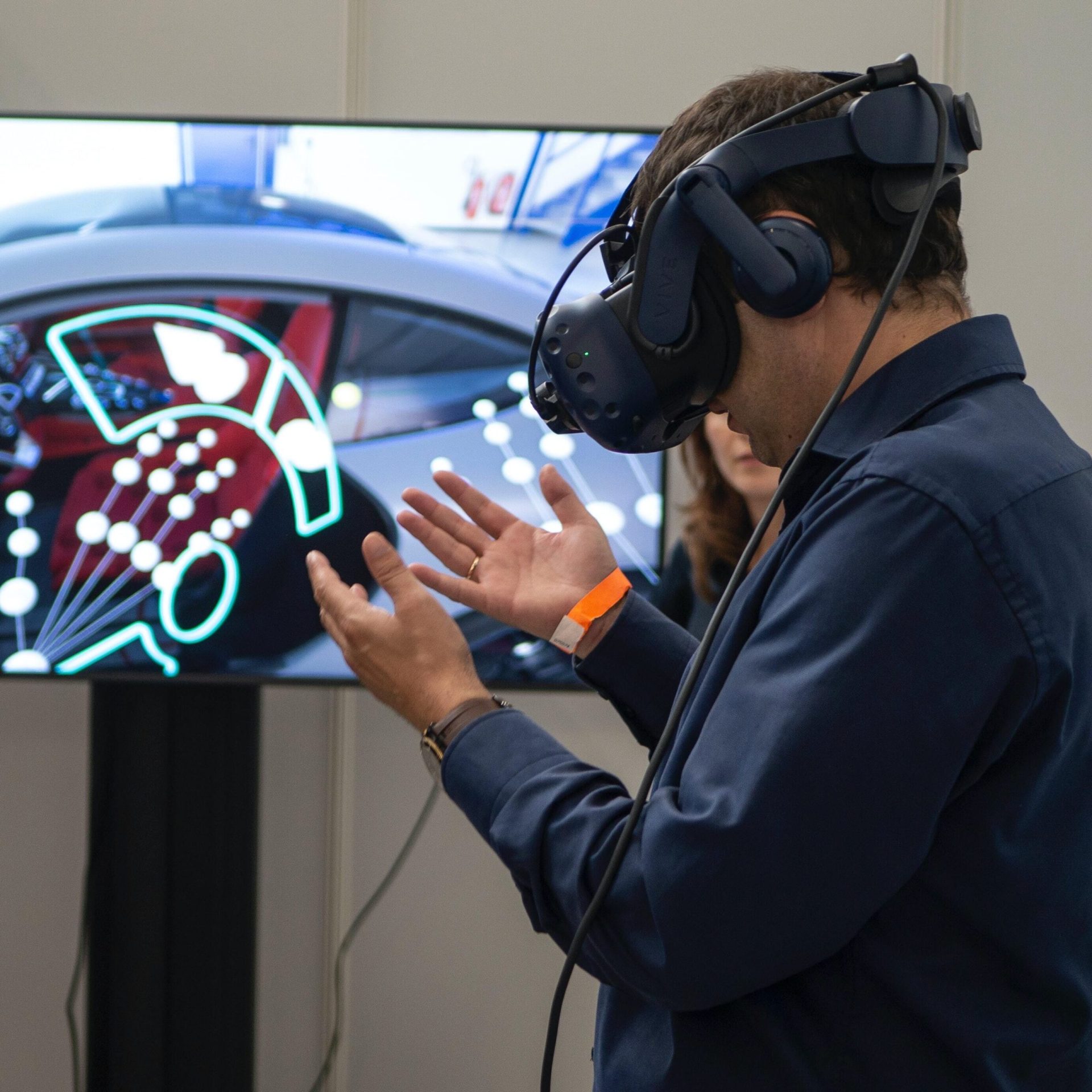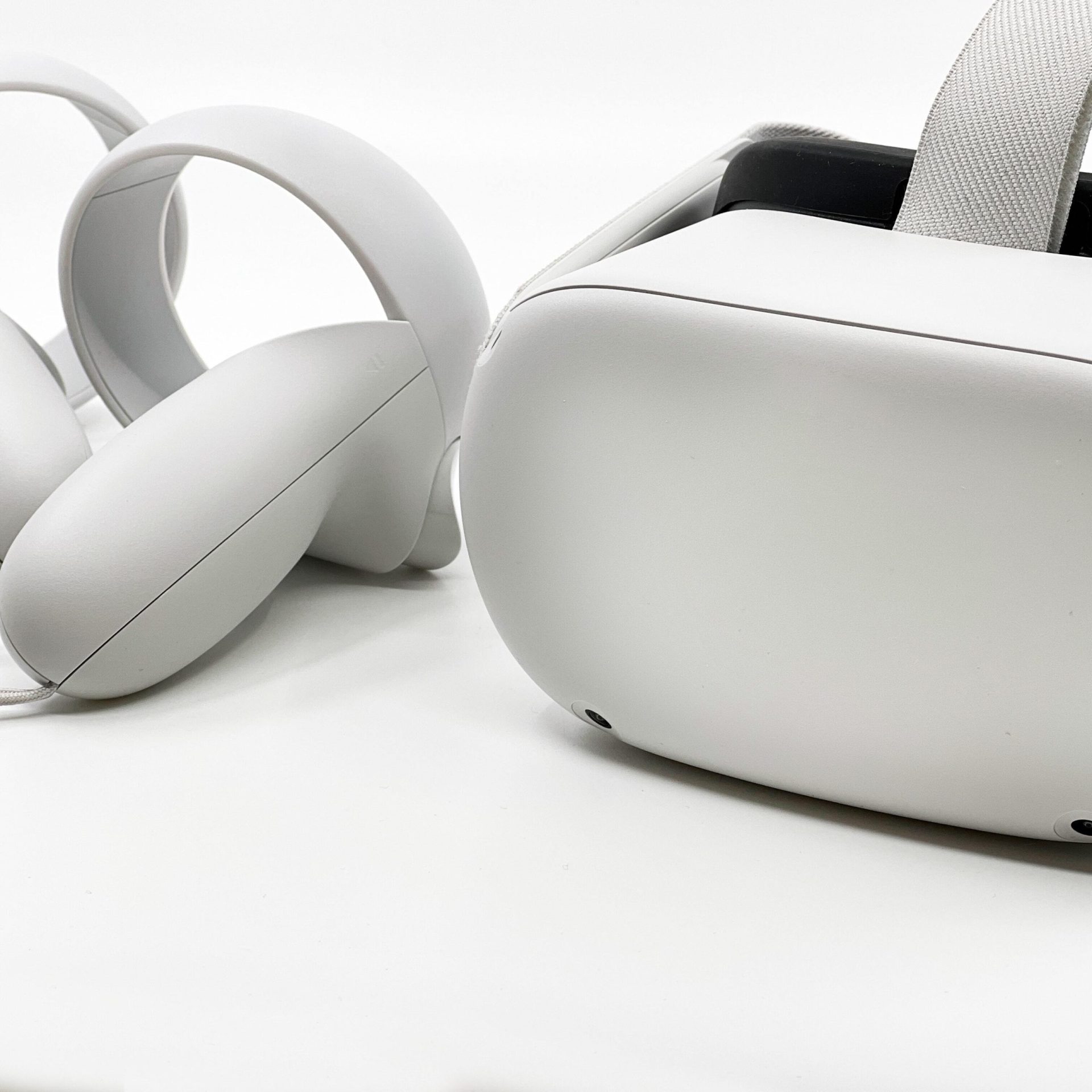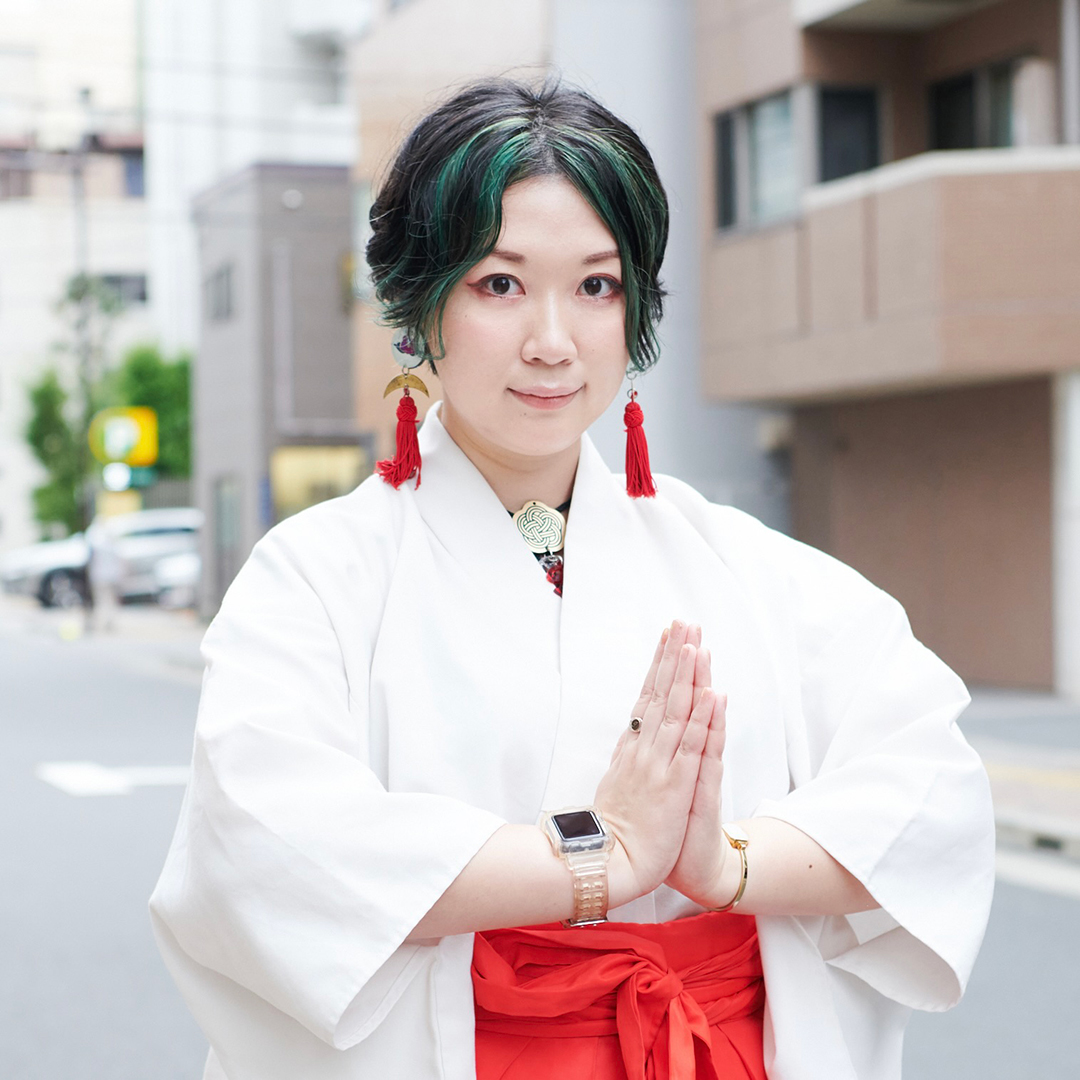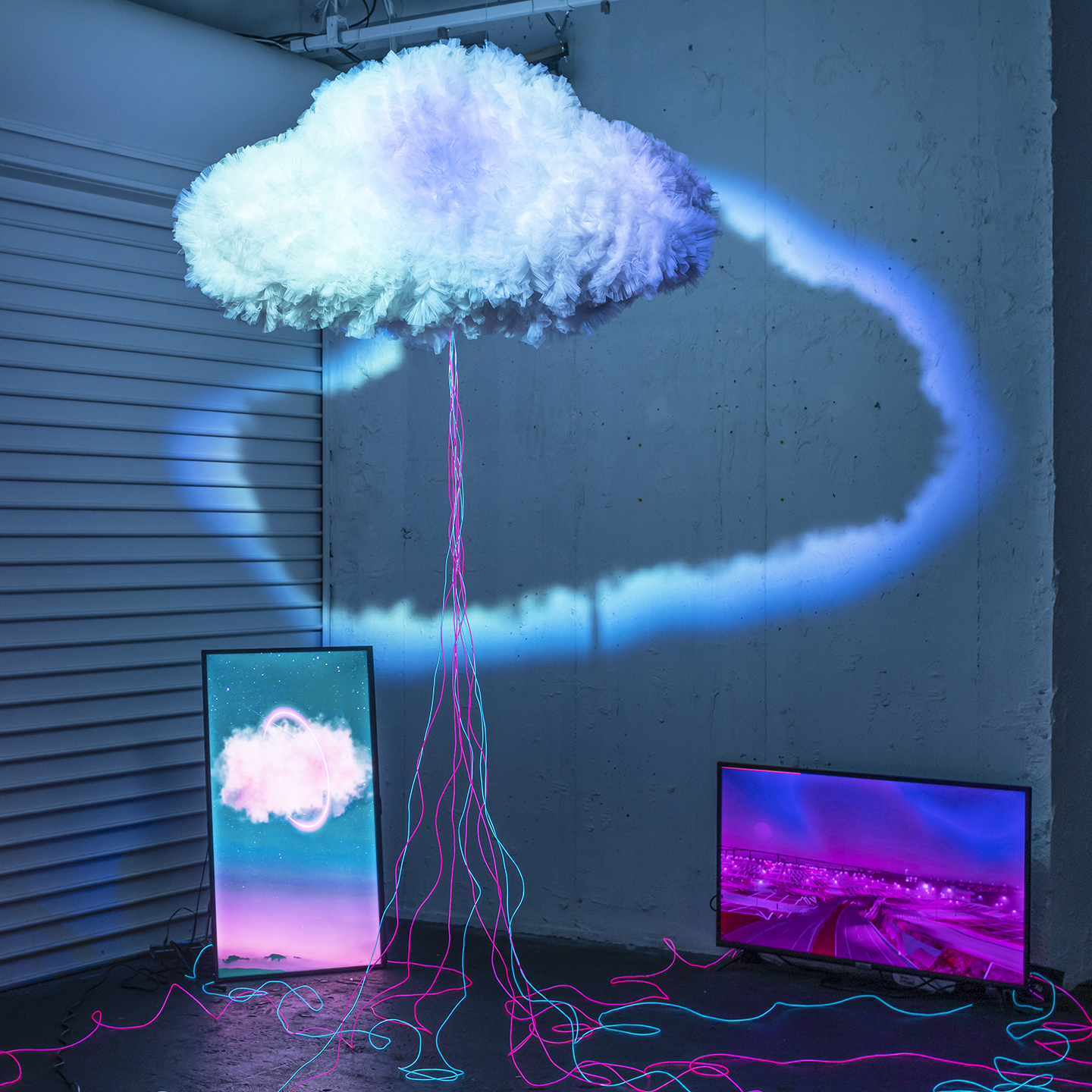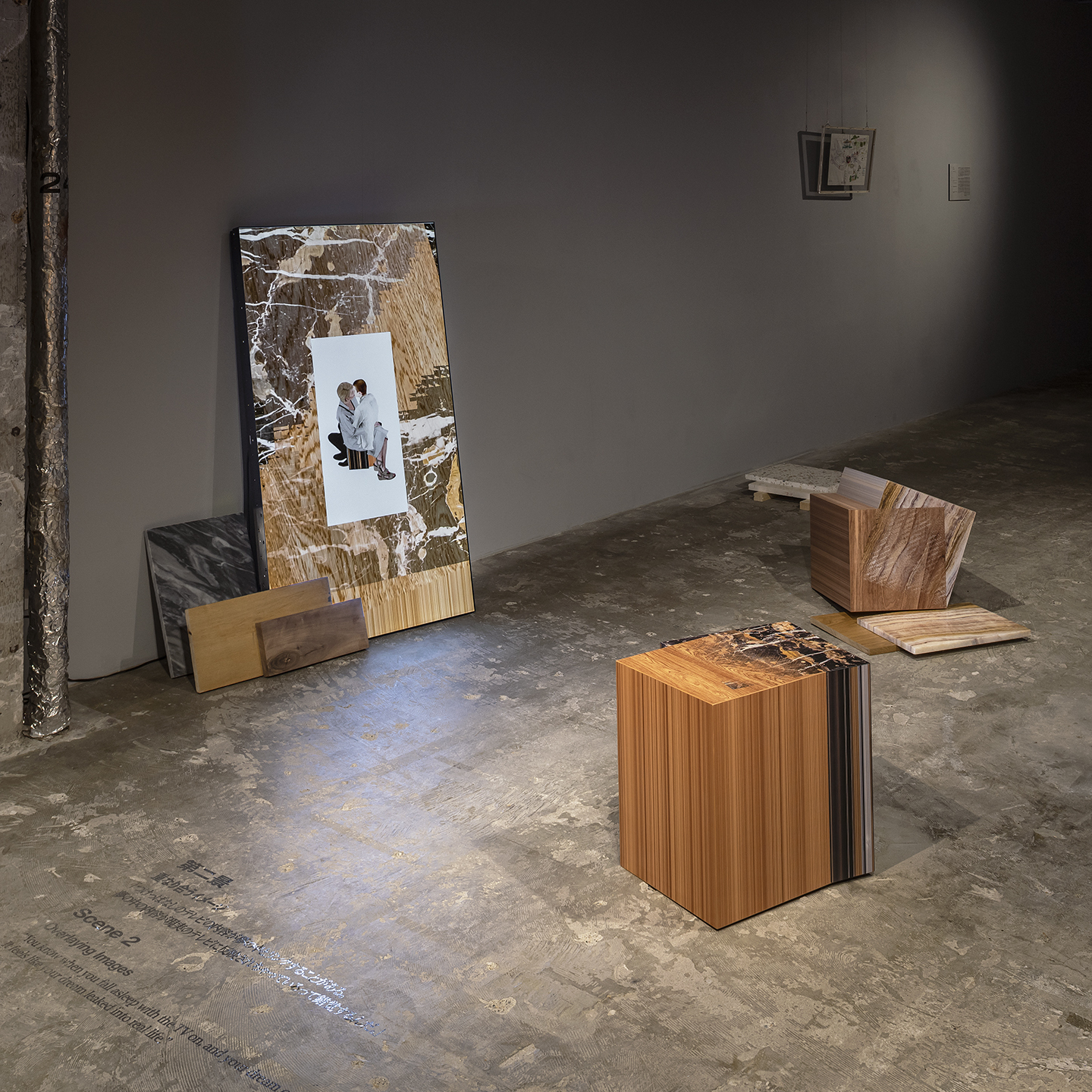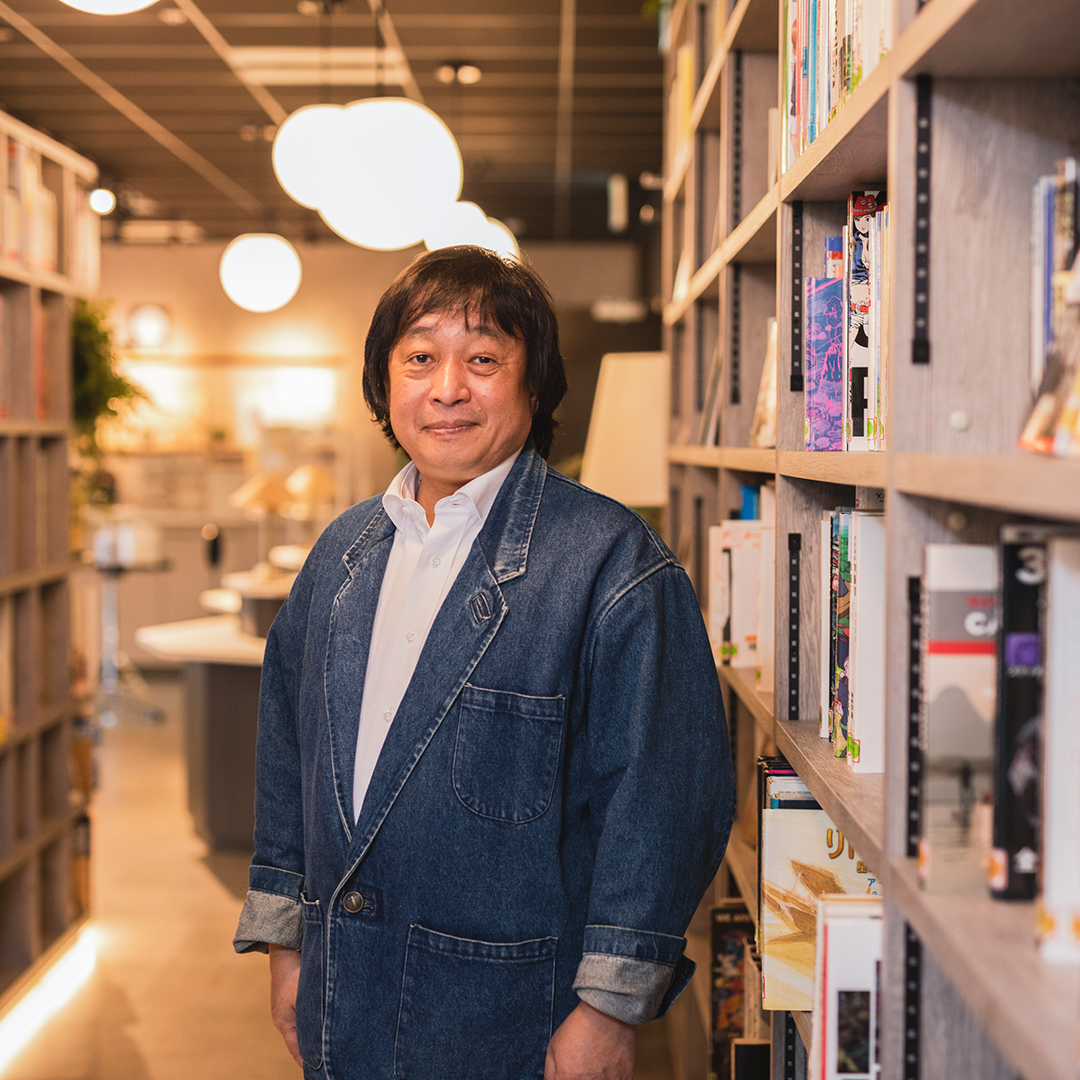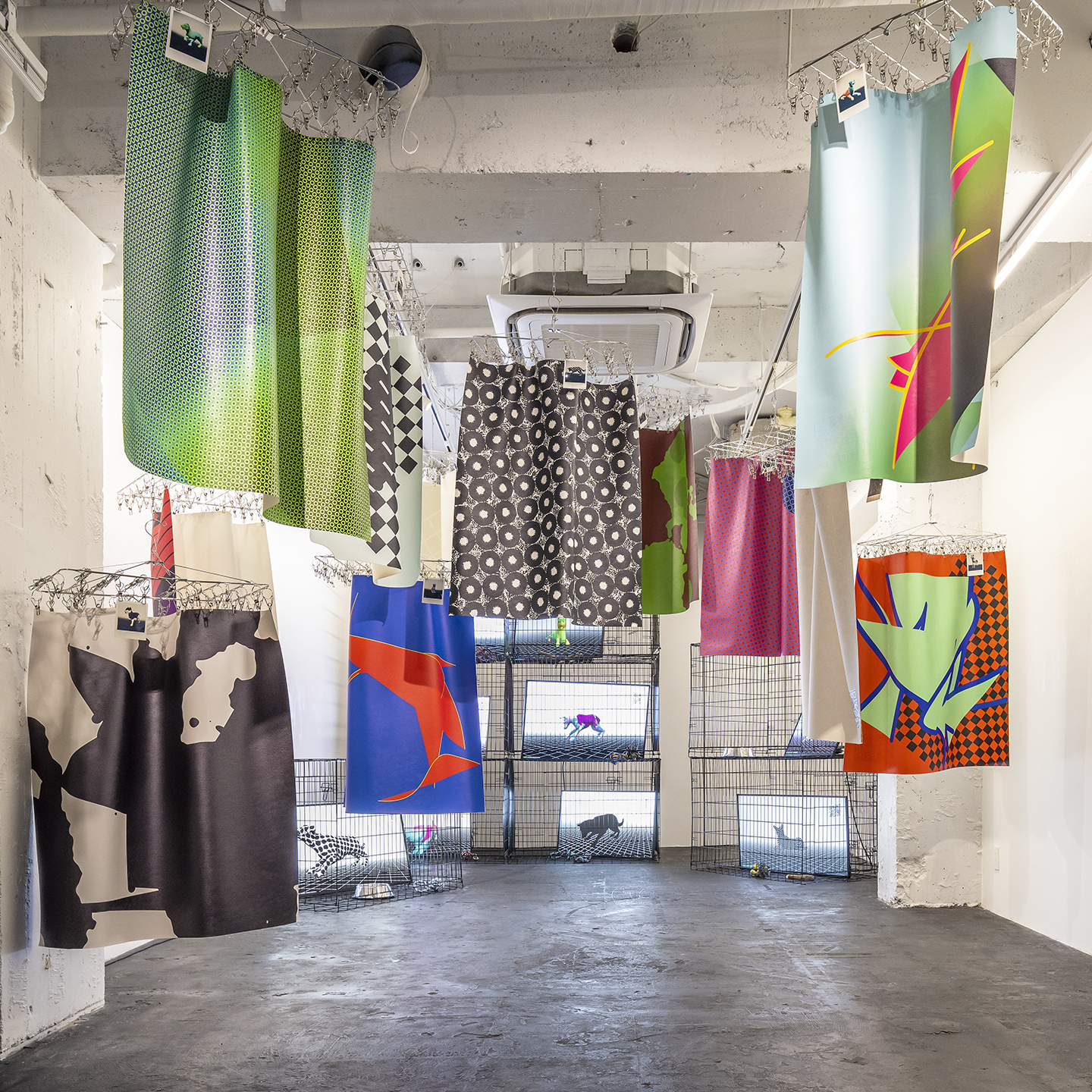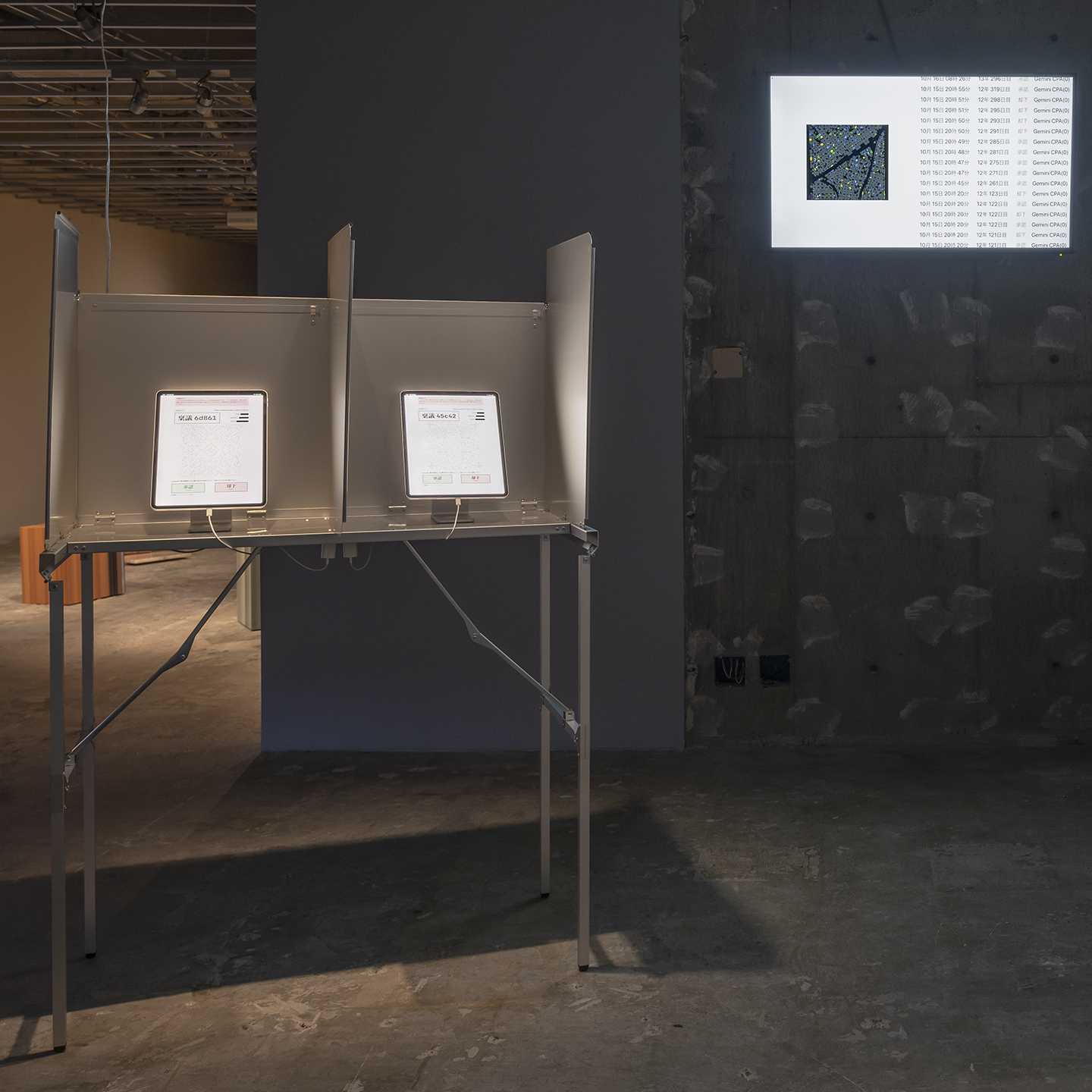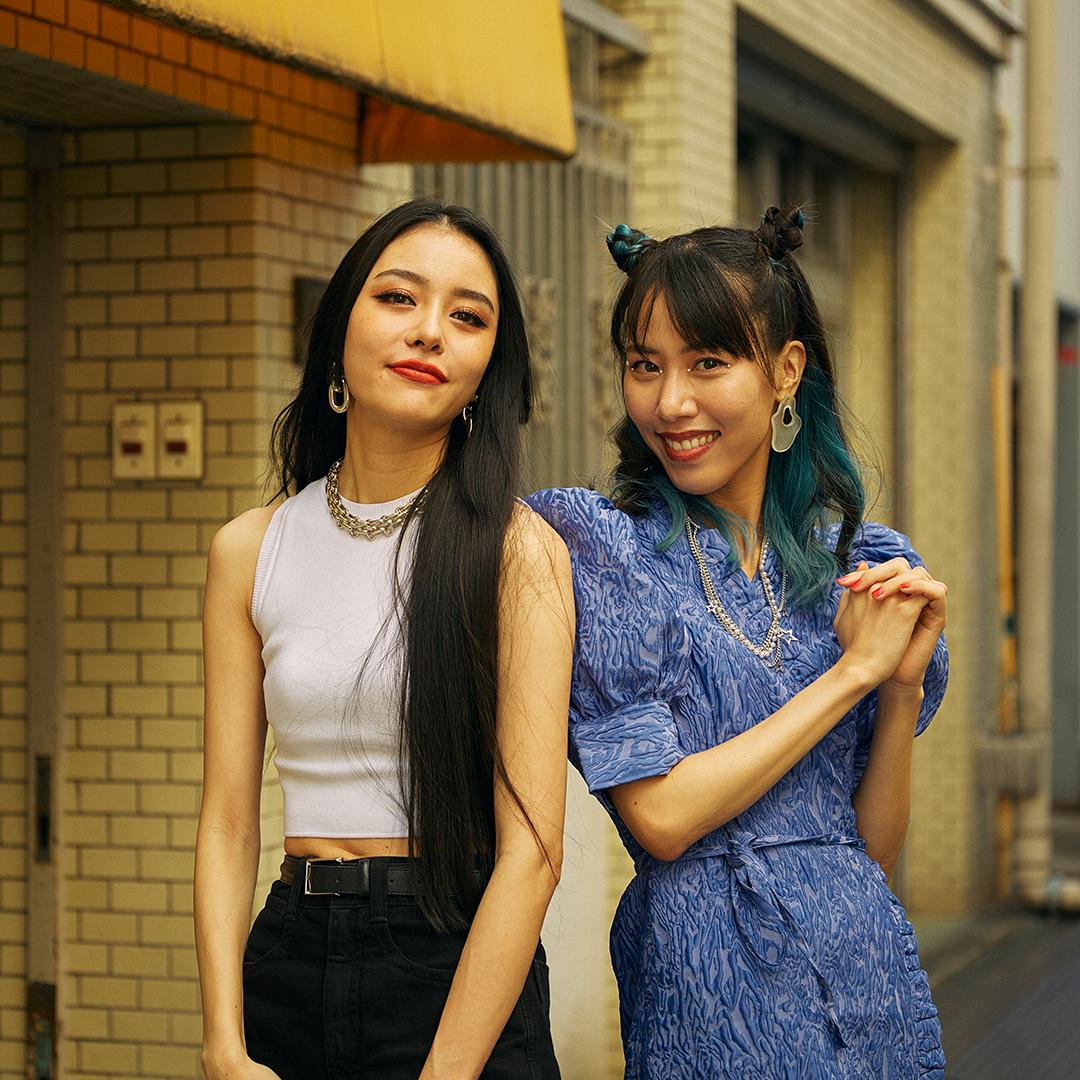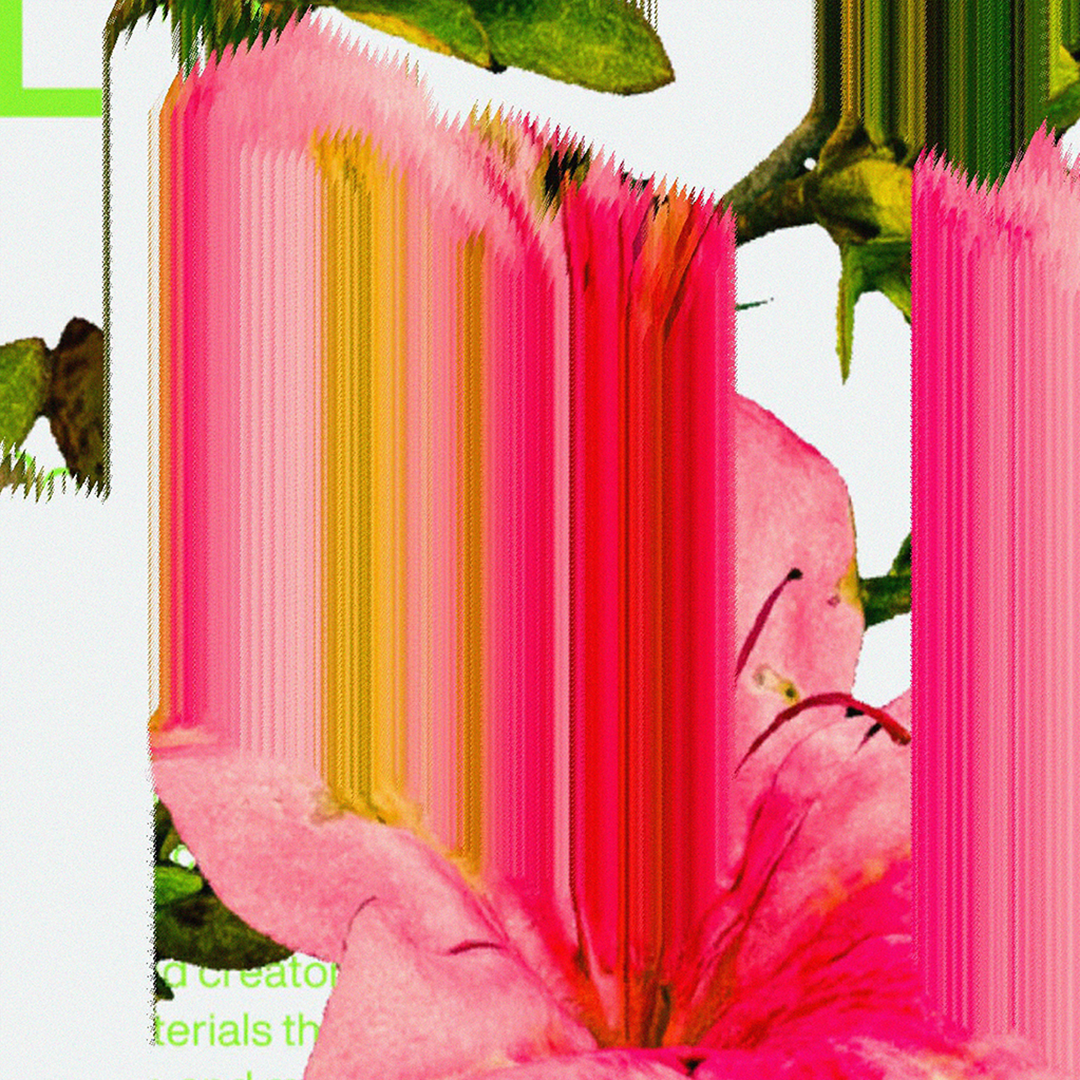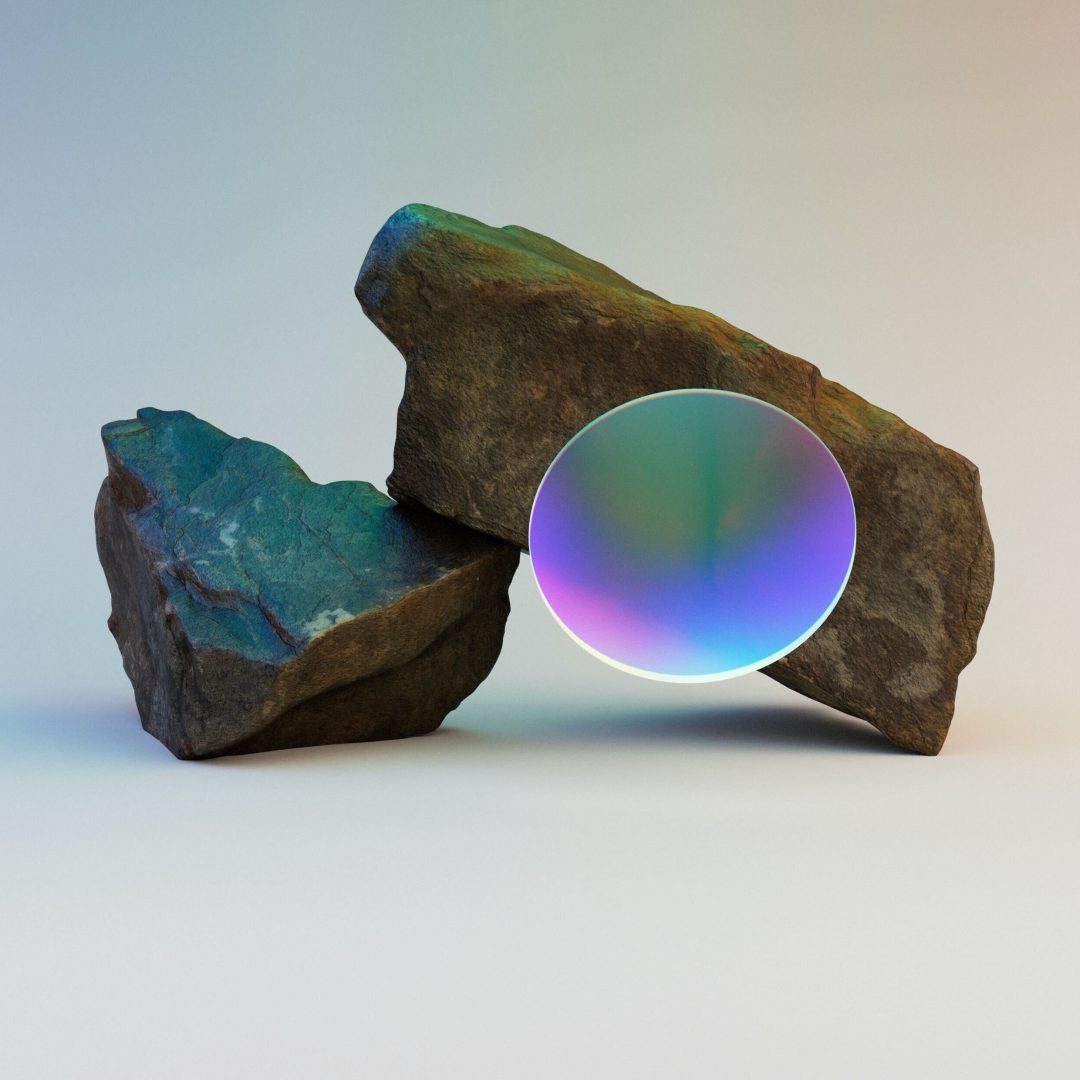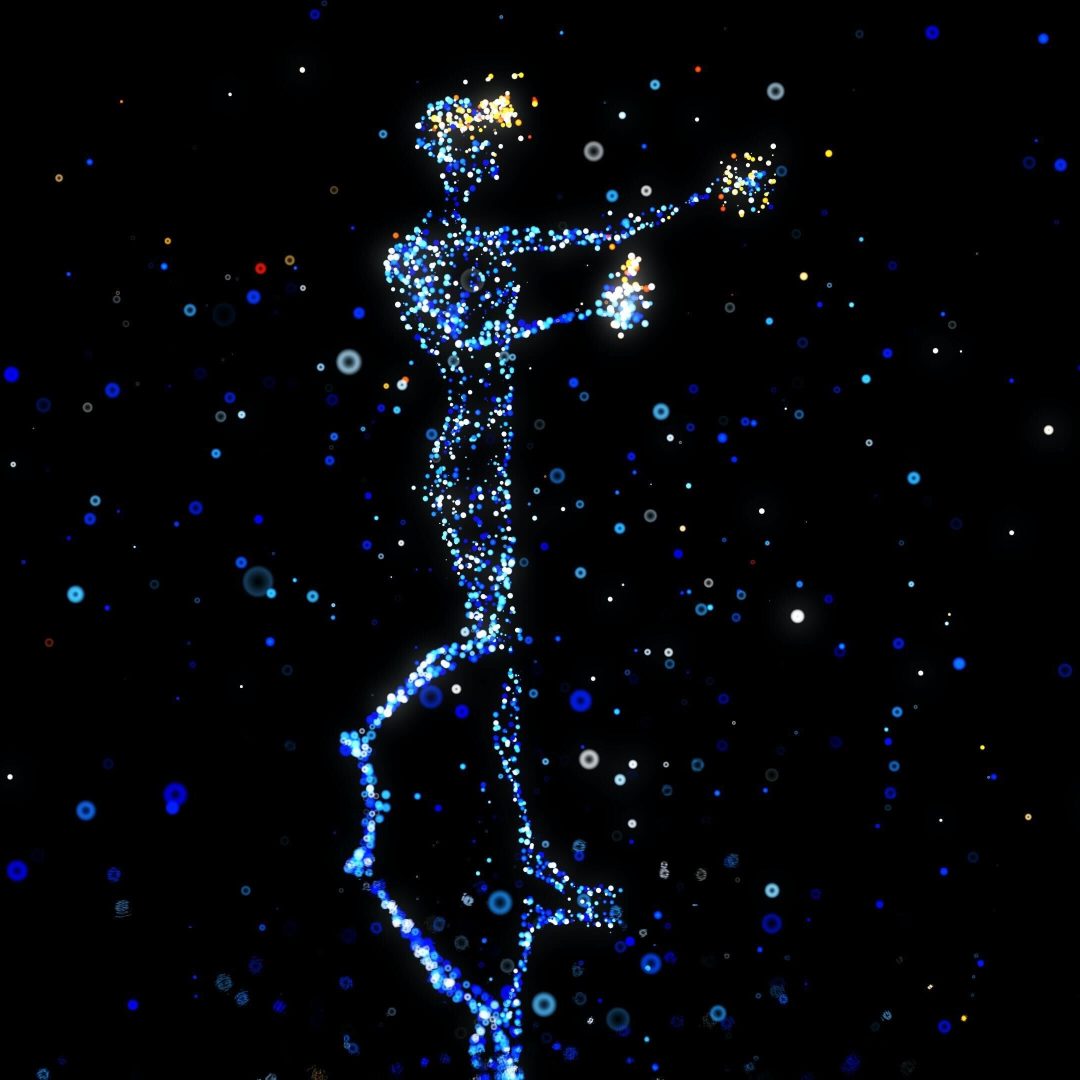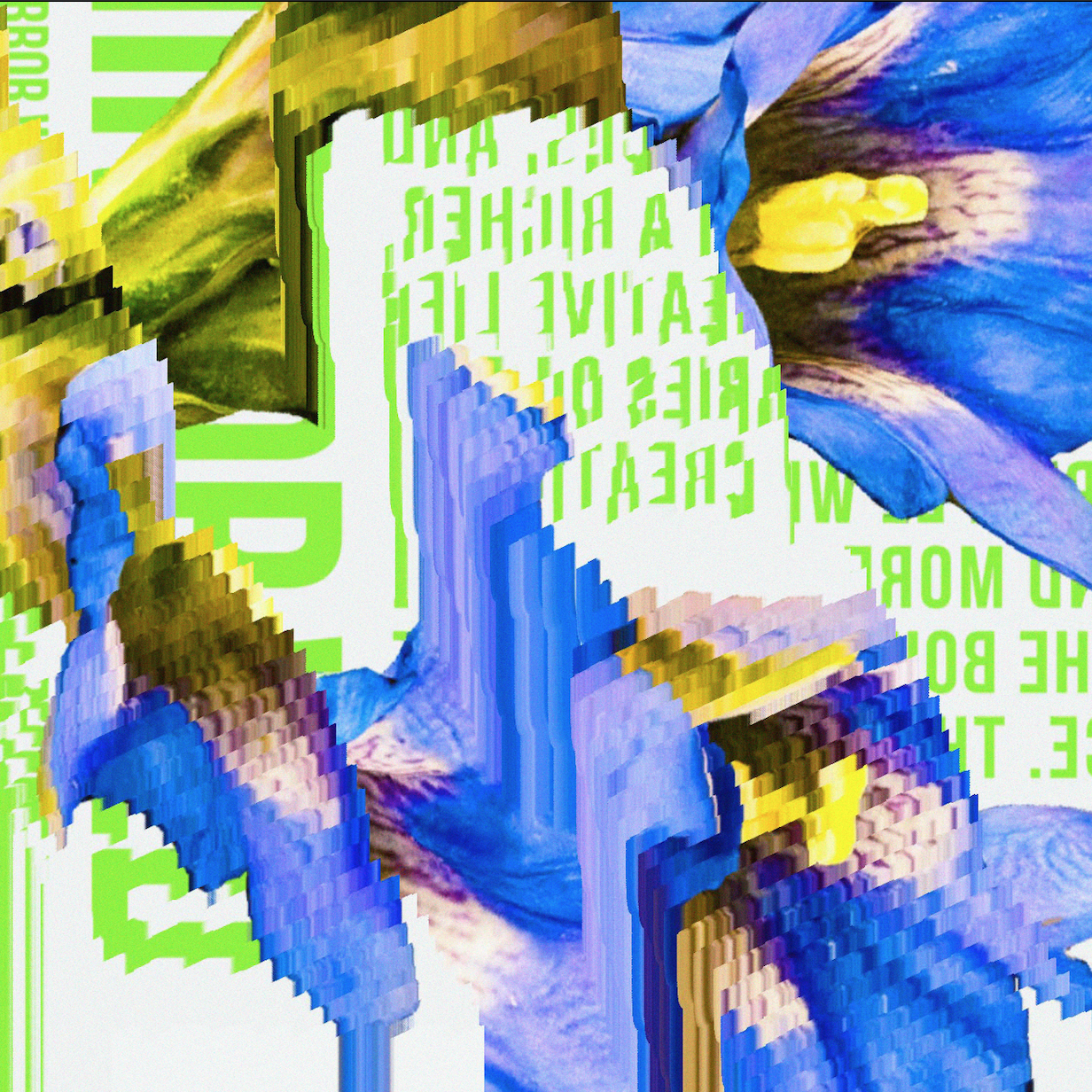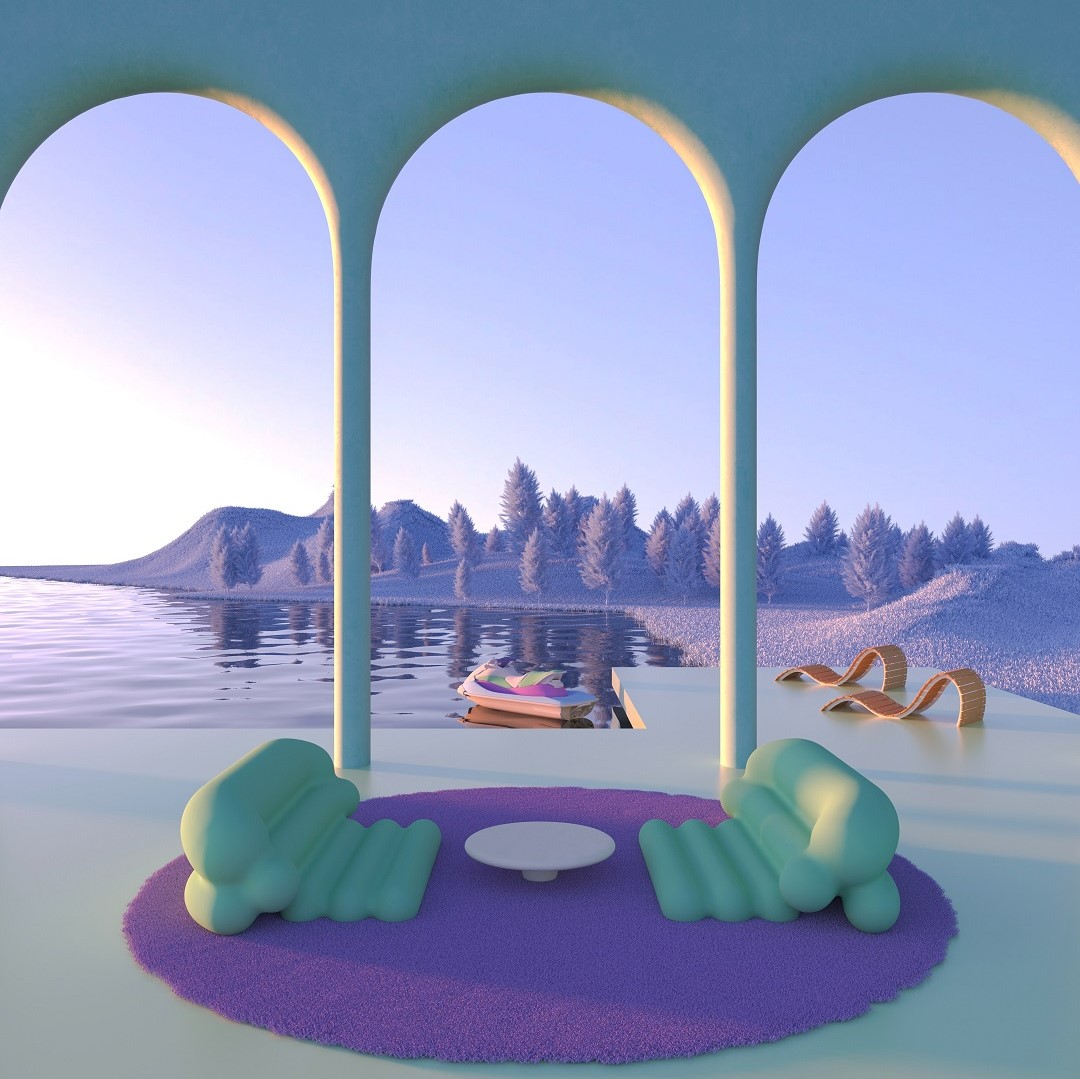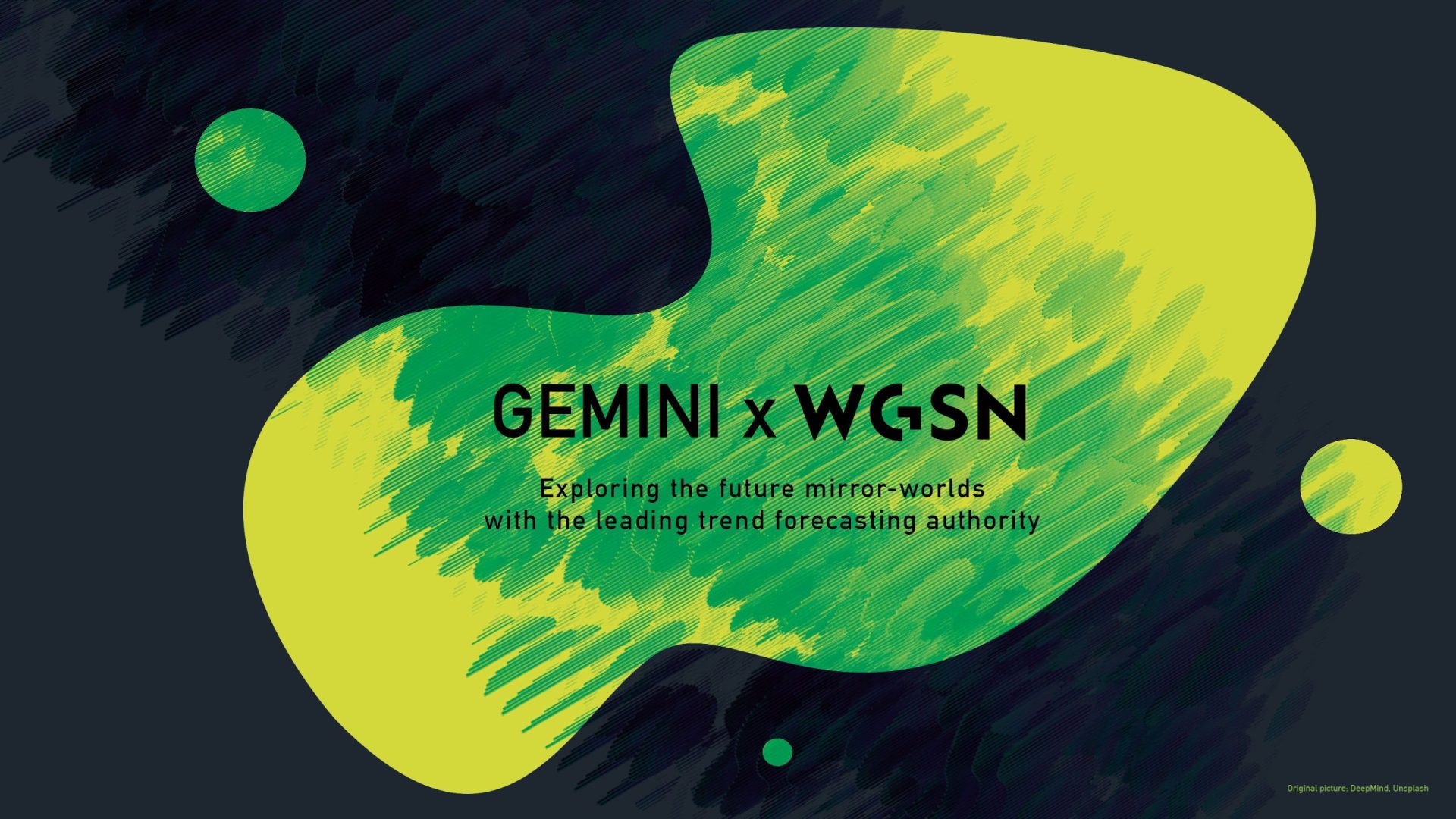Naohiro Ukawa, a representative of the live-streaming channel pioneer DOMMUNE, tried approaches to virtual space, VR, and AR from the perspective of culture and thought, defining the metaverse as the third Summer of Love, which has become a hot topic.
The Summer of Love is a social movement that was fostered mainly by young Americans in the summer of 1967. It is a trend developed by connecting music, drugs, fashion, and art while including assertions on political and cultural issues such as gender, civil rights, and racial discrimination. It has a deep connection with the emergence of outdoor festivals, represented by the 1969 Woodstock Festival, as well as with counterculture as a form of resistance and objection to the existing social system.
The trends of the flower movement in the latter half of the 1960s are called the first Summer of Love, and the rave culture that emerged in England in the latter half of the 1980s is called the second Summer of Love. Both have a counter nature to the existing system, liberating the human spirit in a festive space mainly through music.
We asked Ukawa, who foretells the return of Summer of Love, what the experience in the metaverse would be like.
Reasons for advocating the metaverse as the third Summer of Love theory
─In recent years, the number of DOMMUNE programs that deal with themes adjacent to the metaverse has increased.
Ukawa: Yes. I am a chief juror and lecturer of the experimental project and community NEW VIEW that explores and expands creative expression and experience design in 3D space. Together with them, I am running a monthly program called NEW VIEW DOMMUNE.
While actively discussing XR, we arrived at the metaverse as the third Summer of Love theory. It’s a somewhat dogmatic definition, but for me, the concept of Summer of Love is a movement that dreams of the future of communication that will change the environment.
─Does it refer to an altered state of consciousness like a trip or trance?
Ukawa: It might be more accurate to say that it also includes altered states. The point is that it is neither paradise nor hedonism. In spite of this, what I would like to define as Summer of Love is that we aim to change the mindset of the group rather than the individual. It is the possibility that we can all share dreams, bliss, omniscience and omnipotence, and a sense of unity with the earth and the universe.
Also, how can we realize a phenomenon like Zhuangzi’s “The Butterfly Dream” (a story that Zhuangzi had a dream of becoming a butterfly and could not distinguish whether he became a butterfly or the butterfly became himself) in the physical world? The first and second movements were to dream of the future and to function as triggers to change the everyday. I call this dream reality.
Music, sound systems, expansive floors, and drugs were essential to such previous Summer of Love, but they are not necessary in today’s third Summer of Love. Since XR can already provide an immersive experience that transcends the limitations of the physical space, I believe that the key is how to project dreaming in an augmented or composite virtual reality.
―This immersive feeling has become a power word since the metaverse came into the limelight after social distancing was forced due to the coronavirus pandemic.
Ukawa: One of the current leading immersive experiences is Sony’s 360 Reality Audio.
Introduction video of 360 Reality Audio
All the components of a track, such as bass, hi-hat, kick, and vocals, have position and angle information attached to them, and can be placed in a virtual spherical space. The sound field itself is already VR, but it can also create a three-dimensional listening space by analyzing the auditory characteristics based on the shape of the user’s ears and assuming the size of the skull, and placing sound position information in the head.
Combined with a non-transparent, head-mounted display developed by Meta and others to block physical space information, it is possible to directly inject an experience that completely controls hearing and vision. The sense of solidarity that is freed from all attributes and shares virtual reality online is a new type of communication supported by spatial cognition that is completely different from reality, and I do not hesitate to call this movement the third Summer of Love.
─So, if the first and second were degenerative movements that mainly appealed to the sense of hearing and shared subjective visions in the brain, the third Summer of Love will control and radicalize the auditory and visual elements?
Ukawa: That’s right, but please note that my remarks are infused with the perspective of the creator. In other words, the first important question is, “Who created the metaverse?” I want you to be sensitive to who is directly injecting the experience with full auditory and visual control.
In other words, the third Summer of Love is the era in which people can easily become creators of a better future for themselves by using these technologies.
─I see. So this is about auditory and visual control, and a metaverse study based on a broad liberation of not only the audience and player perspective, but also the creator and artist creative environment
Ukawa: That’s right. Web3 is undoubtedly a transformation from centralized control to an autonomous decentralized society, but at the same time, it also has the potential to incorporate both the metaverse and NFT as an option for centralized control. Therefore, it is important not only to be an audience, but also to be a creator at the same time, projecting your own dreams into the virtual reality.
Travis Scott’s Fortnite live event as a glimpse of the third Summer of Love
Ukawa: Another important factor for the third Summer of Love is the context of network games. This is a slightly old example, but one epoch that cannot be overlooked as a new musical experience born of the coronavirus pandemic is Travis Scott’s performance of “Astronomical” in Fortnite.
Travis Scott’s virtual live “Astronomical” in Fortnite
Ukawa: The live performance in which Travis appeared as a giant avatar was a programmed game reality, not a real-time performance. However, the audience was able to perceive it as an extremely vivid, live performance that was taking place right then.
What we should be thinking about here is the structure of the repeatable program package, which immerses the audience as a different experience each time. In my opinion, it was a live experience that changed according to the subjective coordinates of the audience.
By moving their own avatars in a 360-degree omnidirectional space, spectators could rapidly change their sense of distance from other players and artists around them. For example, if you went underwater, you can even see the soles of his Nike shoes. I felt at the time that the metaverse was a space with the potential to keep changing qualia (sensory qualities) amidst the rapidly changing experience caused by such proactive actions, and that this was the entrance to the third Summer of Love as a festival.
Transition and fusion from Dream Reality to Virtual Reality
Ukawa: You could say that “Astronomical” was a fresh update of the concept of festivals. The concept of festivals as a form of music sharing was born from the Monterey Pop Festival held in 1967, at the height of the psychedelic movement, and the 1969 Woodstock Festival, which is still talked about as a symbol of the counterculture. I believe that festivals fused with the spiritual art liberation movement that had been developing in San Francisco and elsewhere, such as the Beat Generation literary movement, to give birth to the First Summer of Love. It is a collective quest to lead a change in individual consciousness.
In the second Summer of Love, this was carried over into DJ culture. In the space of raves and clubs, I felt that the major revolution was that the audience gathered on the floor itself became the subject that created the space. The paradigm shift that brought this all the way online was the metaverse centered on communication between avatars, which I recognized as a world where gaming and Summer of Love merged.
Unraveling the transition from the first to the third in this way reflects the shift from the dream reality between telepathic brains to the virtual reality that extends cognition into cyberspace and attempts to merge everything, as we move from festivals to raves to online games.
Thinking about the inside out physical and virtual reality, the essence of the third Summer of Love
─The story just now reminds me of Nintendo’s online fighting game Splatoon. The highly psychedelic visuals are reminiscent of the Summer of Love.
Also, for Splatoon 3, which was released in September, a large-scale pre-game event was held online for 12 hours before the release, in which anyone could participate for free, and many fans were there. The enthusiasm and fervor of the crowd was the very essence of a festival.
Splatoon 3 introduction video
Ukawa: In addition to teaching at a university, I am also an instructor at Tokyo Geijutsu Chugaku, an art school for junior high school students, and I have seen firsthand how influential the Splatoon series is among elementary and junior high school students. This is especially noticeable among girls, and from what I have heard, the enthusiasm is similar to that of abstract graffiti/writing hacking, as in the naming of the splash bombs.
Moreover, the 12-hour-long set is Summer of Love-like. In search of such a deep festival experience, people gather in the world of online games, and the concept of this century’s festival is being expanded by involving a wide range of generations. This is the entrance to the third Summer of Love.
Also, if you want to get a sense of the third Summer of Love metaverse I am discussing, I think that you will be convinced if you participate in Roblox as a creator. This online game creative platform allows adults to interact in a world created by elementary and junior high school students. Languages from all over the world are flying in chat, and people are connected online regardless of race, gender, or age.
Opening video of Roblox’s annual event RDC 2022
─When you think about it, there is a sense of an era in which Summer of Love-like ideas were implemented in familiar environments, with game engines as the mainstay. So, what do you think is the future of the third Summer of Love?
Ukawa:I feel that the digital natives who are participating in these activities are a generation that is spending more time on the Internet in many ways, with social networking, video sharing, and online gaming, and that the physical and virtual realities are turning inside out. This is a generation in which many children are aware that their identity as avatars living in a network is more inherent than the self that exists in physical space. I feel that they are living under the assumption that reality is already extended there, rather than transformed to cross the border of reality as in the past with the Summer of Love.
The “incarnation” as it is called in the VTuber world is one example. The incarnated self in the avatar of a beautiful girl created with 3DCG is the only thing that feels realistic, and the incarnated beings can freely create their own characters, deepening communication and sharing values with each other. Although the people inside are of different ages and genders, there is a reality that transcends the social position of the real world, and I feel that the era has reached a point far removed from the individual identity statements and self-identity convictions of the second Summer of Love.
If the first is liberation from the state, the second is liberation from the system, and the third is liberation from socially imposed individual attributes, in other words, the essence of the third is to be free to define oneself. But, for example, Shinji Miyadai, who I’m with on the DOMMUNE program, says that the unspecified nature that doesn’t fit into that category is what’s important for Summer of Love, and I completely agree.
Mr. Takeshi Yoro once said, “It’s useless to ‘find yourself’.” In other words, the self is constantly changing, and there is no real self. If you can be whoever you want to be, what you need is self-development. This can be defined as the first Summer of Love, which emphasizes self-discovery, the second as self-liberation, and the third Summer of Love as self-development, where you develop the person you want to be. Discovery! Liberation! Development! (laughs)
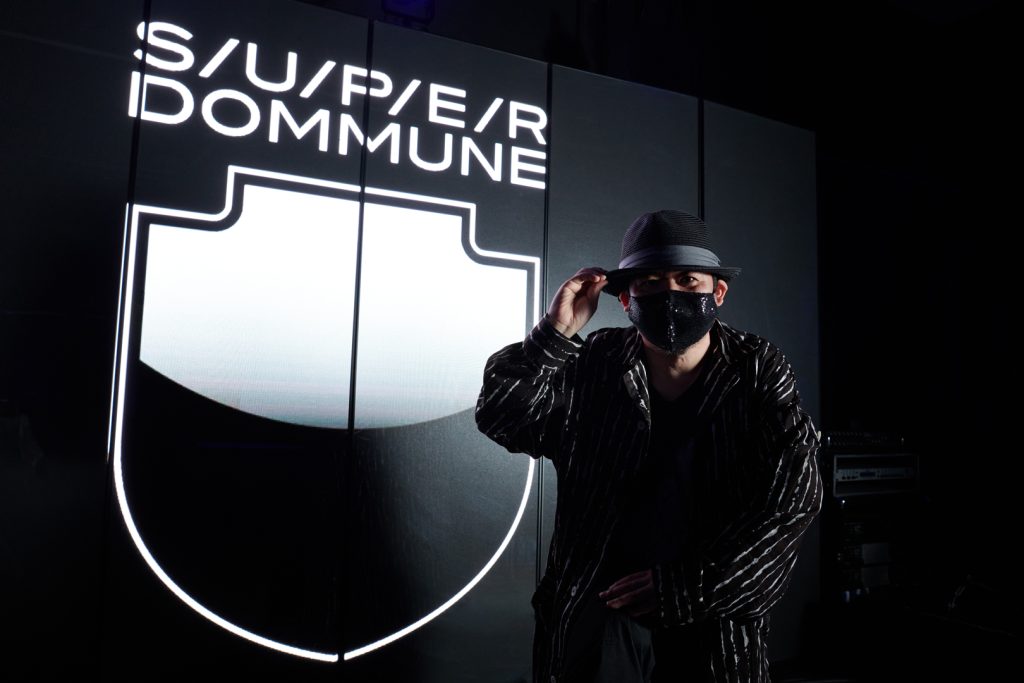
How can we change the everyday life that used to be called “ke” and continue to make it a “hare” day?
─So, the key point here is learning, right?
Ukawa: That’s right. Alternative learning and educational perspectives have been in the Summer of Love so far, and the same is true for DOMMUNE, which is doing live streaming every day. The slogan when DOMMUNE first opened was “What’s wrong with a festival on a weekday!” (laughs), and we have been following this attitude for 12 years and have been streaming without fail.
─Certainly.
Ukawa: I regard the act of filming, distributing, and recording the programs produced in this DOMMUNE studio as my own work of contemporary art.
On the physical floor of DOMMUNE, which is neither meta nor virtual, there is the first site where I myself, who am alive today, exist and share it with the people gathered in the studio. The second site, which views the first site through the Internet, exists as the viewing environment for each viewer. Then there is a third site, the timeline, where the viewers interact with each other. These are fused together to form the “gachiverse” called DOMMUNE (laughs).
The name DOMMUNE itself is also derived from the first Summer of Love commune. It is the “D” that follows “C” because we wanted to explore an alternative way of being as a collective that has been practiced by the commune. In other words, DOMMUNE itself is a universe practiced by living bodies, succeeding the first Summer of Love.
John Hanke, the CEO of Niantic, has said that the virtual reality world Mark Zuckerberg wants to create with Meta is a dystopian nightmare, right? That statement may be extreme, but if he wants to reunite the physical real world (atoms) and the digital world (bits), the concept of DOMMUNE is pretty close to that.
In the coronavirus pandemic that everyone unexpectedly entered, social distancing was forced, remote communication became the norm, and everyone was forced to participate in this type of survival. A few years later in this post-pandemic era, I feel that the value of physicality has increased considerably.
At the same time, I dream of a third Summer of Love. I think this balance is important. I also think there are many things we can learn from the gaming identities of digital natives who nurture a new self and enjoy the multiple selves that have grown from it while navigating cyberspace. I am convinced that this is an important idea when considering and creating the metaverse.
Guest Profile
-
Naohiro Ukawa
Naohiro Ukawa
Born In Kagawa Prefecture In 1968. An Artist. Since The End Of The 1980s, He Has Been Active In A Wide Range Of Fields, Including Filmmaker, Graphic Designer, VJ, Writer, And University Professor. Since Participating In "Buzz Club: News From Japan" (MoMA PS1, New York) And "JAM: Tokyo-London" (Barbican Art Gallery, London) In 2001, He Has Presented His Work At Many Exhibitions Both In Japan And Abroad. In 2010, He Personally Opened Japan's First Live Streaming Studio And Channel "DOMMUNE". With A Record Number Of Viewers, It Has Become A Hot Topic Both In Japan And Overseas, And Was Selected As A Recommended Work At The 2011 Agency For Cultural Affairs Media Arts Festival. Ukawa Regards The Act Of Filming, Distributing, And Recording The Programs That Are Produced Daily At DOMMUNE Studio As His Own 'Contemporary Works Of Art'. In 2016, He Opened A Satellite Studio "DOMMUNE LINZ!" With A Stage Width Of 500m At The Train Hall Of Ars Electronica (Linz, Austria). Both Have Become A Big Topic, And DOMMUNE Has Participated In A Number Of International Contemporary Art Exhibitions, Including London, Dortmund, Stockholm, Paris, Mumbai, Linz, Fukushima, Yamaguchi, Osaka, Kagawa, Kanazawa, Akita, Sapporo, We Have Created Satellite Studios On Sado Island And Around The World, And Continue To Explore The Meaning Of Ubiquity (Here And Now) And Ubiquity (Anytime, Anywhere) At The Same Time. Over The Past 10 Years, Over 5,000 Programs/About 7,000 Hours/Over 150 Tera Have Been Distributed, And The Total Number Of Viewers Exceeds 100 Million. In 2019, The Studio Moved To The Renovated Shibuya PARCO 9F. Evolving Into “SUPER DOMMUNE”, We Plan To Update Our Eyes On The Future With The Most Avant-Garde Technology After 5G. In 2021, He Received The 71st Minister Of Education, Culture, Sports, Science And Technology Award For Art Encouragement.
- DOMMUNE: https://www.dommune.com/
Co-created by
-
Taisuke Shimanuki
Writer
Taisuke Shimanuki
Writer
Art Writer/Editor. Born In Kanagawa In 1980. Living In Beppu, Kyoto. Writes, Edits, And Plans For Tokyo Art Beat, CINRA.NET, And Bijutsu Techo. In 2019, Formed A Collective Research Group With Ai Saegusa (Artist) And Pijin Neji (Dancer). From 2021, The Team Name Will Be Changed To "Uho", And They Will Continue To Research And Output In Various Forms Such As Exhibitions, Performances, And Editorials.
- Kamoberi | Social Distance Art Magazine: http://kamoberi.com/
-
Nozomi Toyoshima
Photographer
Nozomi Toyoshima
Photographer
Worked As A Photographer In 2011 After Working At A Studio In Tokyo And As A Freelance Camera Assistant.
- Nozomu Toyoshima: http://toyoshimanozomu.com/
Tag
Share
Discussion
Index
Index
Archives
Recommend
Recommend
Recommend
Recommend
Recommend
-

{ Prototype }
GEMINI Laboratory GLOBAL DESIGN AWARDS WINNERS ANNOUNCEMENT
GEMINI Laboratory GLOBAL DESIGN AWARDS WINNERS ANNOUNCEMENT
GEMINI Laboratory GLOBAL DESIGN AWARDS WINNERS ANNOUNCEMENT
-

{ Community }
Osinachi: Pioneering the African Digital Art Revolution through Web3
Osinachi: Pioneering the African Digital Art Revolution through Web3
Osinachi: Pioneering the African Digital Art Revolution through Web3
-

{ Special }
Colour Evolution & Mirror-World Series
Colour Evolution & Mirror-World Series
Colour Evolution & Mirror-World Series
-

{ Community }
Is field recording in VR possible?Eisuke Yanagisawa speaks about the act of listening, sound information volume, and technology
Is field recording in VR possible?Eisuke Yanagisawa speaks about the act of listening, sound information volume, and technology
Is field recording in VR possible?Eisuke Yanagisawa speaks about the act of listening, sound information volume, and technology
-

{ Special }
Wellbeing in the Metaverse
Wellbeing in the Metaverse
Wellbeing in the Metaverse
Hot topics
Hot topics
Hot topics
Hot topics
Hot topics
-

{ Prototype }
GEMINI Laboratory GLOBAL DESIGN AWARDS WINNERS ANNOUNCEMENT
GEMINI Laboratory GLOBAL DESIGN AWARDS WINNERS ANNOUNCEMENT
GEMINI Laboratory GLOBAL DESIGN AWARDS WINNERS ANNOUNCEMENT
-

{ Community }
Scenting the metaverse with olfactory futurist, Olivia Jezler
Scenting the metaverse with olfactory futurist, Olivia Jezler
Scenting the metaverse with olfactory futurist, Olivia Jezler
-

{ Community }
Architect Mark Foster Gage: Kitbashing opens up design possibilities
Architect Mark Foster Gage: Kitbashing opens up design possibilities
Architect Mark Foster Gage: Kitbashing opens up design possibilities
-

{ Community }
Fashion Historian Pamela Golban: Beyond the Fusion of Virtual and Physical
Fashion Historian Pamela Golban: Beyond the Fusion of Virtual and Physical
Fashion Historian Pamela Golban: Beyond the Fusion of Virtual and Physical
-

{ Community }
Ars Electronica’s Hideaki Ogawa on the Happy Relationship between Media Art and the City
Ars Electronica’s Hideaki Ogawa on the Happy Relationship between Media Art and the City
Ars Electronica’s Hideaki Ogawa on the Happy Relationship between Media Art and the City
-

{ Community }
Unlocking New Worlds: How Gaming is Leading Southeast Asia’s Journey into Web3
Unlocking New Worlds: How Gaming is Leading Southeast Asia’s Journey into Web3
Unlocking New Worlds: How Gaming is Leading Southeast Asia’s Journey into Web3
-

{ Community }
Tomihiro Kono, who also designs wigs for Björk, explores multiple areas of creativity, including 2D, 3D, and AR
Tomihiro Kono, who also designs wigs for Björk, explores multiple areas of creativity, including 2D, 3D, and AR
Tomihiro Kono, who also designs wigs for Björk, explores multiple areas of creativity, including 2D, 3D, and AR
Special
Special
Special
Special
Special
Featured articles spun from unique perspectives.
What Is
“mirror world”...
What Is
“mirror world”...
What Is
“mirror world”...
What Is
“mirror world”...
What Is
“mirror world”...
“mirror world”... What Is
“mirror world”... What Is
“mirror world”... What Is
“mirror world”... What Is
“mirror world”...
Go Down
Go Down
Go Down
Go Down
Go Down
The Rabbit
The Rabbit
The Rabbit
The Rabbit
The Rabbit
Hole!
Hole!
Hole!
Hole!
Hole!
Welcome To Wonderland! Would You Like To Participate In PROJECT GEMINI?

